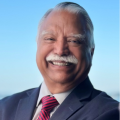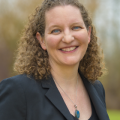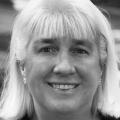United Food and Commercial Workers (UFCW) 3000 was formed from the merger of UFCW 21 and UFCW 1439. It is the largest private-sector union in Washington, with over 50,000 members working in grocery store, retail, health care, cannabis, meat processing and other industry jobs in Washington, northeast Oregon, and northern Idaho. It represents more retail and grocery employees and more professional and technical health care employees than any other union in the state.
Whatcom County Ballot Measures
Depending on where you live, you may have one of the below ballot measures on your ballot.
Progressive opponents of Whatcom Proposition 2023-4 rightly point out the fundamentally racist and oppressive nature of the current criminal legal system. Rather than investing hundreds of millions of dollars into a big new jail, they argue we should be helping meet people’s needs and using proven strategies to reduce crime, including providing housing and support services. They also point out the regressive nature of increasing the county sales tax when we already have the most upside-down tax code in the nation.
Progressive opponents criticize the lack of detail and plans in the proposition, even in comparison with the 2015 and 2017 measures. There are no written specifics about the size of the facility or even how much it will cost, leaving a large amount of discretion with a small number of leaders on this important issue. However, they are very concerned about the possibility of a 440-cell jail that could hold 880 people or more based on how the current facility is used.
Opponents often cite a very thorough 2017 report from the Vera Institute of Justice commissioned by Whatcom County to look into the issue of overcrowding and how to alleviate it. Notably, the report found many opportunities that don’t require a big new jail. For instance, a majority of jail admissions came from non-felony charges. By providing more diversion opportunities for low-level offenders, many jail bookings could be avoided entirely. In addition, DUIs and drug use were some of the most common charges for jail admissions. Many of these bookings could be avoided by providing more sobering houses and substance use treatment. The 81-page report is available here.
Maybe the most striking evidence for the need for reforms instead of a jail came from a report from Whatcom County published earlier this year. It found that 98 percent of the current jail population is awaiting trial and nearly two-thirds of them were in jail for an unnecessarily long period of time because they couldn’t pay their cash bail. It indicates Whatcom County could significantly reduce jail overcrowding by reforming the bail system to focus on risk rather than financial means. You can find the 110-page report here.
Opponents of Proposition 2023-4 urge the county to pursue these alternatives that would reduce the prison population and improve lives at a far lower cost than building a new jail.
Progressive opponents of Whatcom Proposition 2023-4 rightly point out the fundamentally racist and oppressive nature of the current criminal legal system. Rather than investing hundreds of millions of dollars into a big new jail, they argue we should be helping meet people’s needs and using proven strategies to reduce crime, including providing housing and support services. They also point out the regressive nature of increasing the county sales tax when we already have the most upside-down tax code in the nation.
Progressive opponents criticize the lack of detail and plans in the proposition, even in comparison with the 2015 and 2017 measures. There are no written specifics about the size of the facility or even how much it will cost, leaving a large amount of discretion with a small number of leaders on this important issue. However, they are very concerned about the possibility of a 440-cell jail that could hold 880 people or more based on how the current facility is used.
Opponents often cite a very thorough 2017 report from the Vera Institute of Justice commissioned by Whatcom County to look into the issue of overcrowding and how to alleviate it. Notably, the report found many opportunities that don’t require a big new jail. For instance, a majority of jail admissions came from non-felony charges. By providing more diversion opportunities for low-level offenders, many jail bookings could be avoided entirely. In addition, DUIs and drug use were some of the most common charges for jail admissions. Many of these bookings could be avoided by providing more sobering houses and substance use treatment. The 81-page report is available here.
Maybe the most striking evidence for the need for reforms instead of a jail came from a report from Whatcom County published earlier this year. It found that 98 percent of the current jail population is awaiting trial and nearly two-thirds of them were in jail for an unnecessarily long period of time because they couldn’t pay their cash bail. It indicates Whatcom County could significantly reduce jail overcrowding by reforming the bail system to focus on risk rather than financial means. You can find the 110-page report here.
Opponents of Proposition 2023-4 urge the county to pursue these alternatives that would reduce the prison population and improve lives at a far lower cost than building a new jail.
Whatcom County
Depending on where you live, you may have the below county races on your ballot.
Whatcom County Executive Satpal Sidhu is running for re-election this year. He is a small business owner, the former dean of Bellingham Technical College, and he served on the Whatcom County Council for four years prior to running for county executive in 2019.
Sidhu led Whatcom County through a particularly tumultuous period. Most of his first term was focused on supporting the community through the pandemic - which began just two months after he took office - and responding to the historic Nooksack River flood. During his first term, the Whatcom County Council also unanimously banned any expansion of fossil fuel facilities at Cherry Point after many years of debate and public protest. He was also supportive of the county's Climate Action Plan and reducing the use of natural gas in local buildings. Sidhu's track record on climate and conservation issues earned him the sole endorsement of Washington Climate Action in this race.
The other defining issue of Sidhu's term has been the ongoing fight about a new Whatcom County Jail. He has sometimes been at odds with progressive activists over how to handle this facility. Sidhu supported the previous ballot measure that voters rejected. In June, Sidhu proposed a 0.2 percent sales tax increase to build a new jail with 440 cells that would cost at least $137 million. While it's an improvement over previous proposals, some local progressives were disappointed that he continued to push for building a bigger jail. If he's re-elected, we hope Sidhu will adopt a more progressive stance on the jail facility and other issues involving the criminal legal system.
Sidhu also generated some criticism for his handling of The Healthy Children's Fund, which voters narrowly approved last November. Shortly after the election, he recommended reducing the tax rate written in the ballot measure because he expected it would raise more money than originally estimated. In March, he recommended redirecting $4.5 million from the levy to other purposes. The Whatcom County Council disagreed, voting 6-1 to maintain the funding for building and renovating child care facilities.
He is running for a second term on a platform of housing affordability, salmon recovery, and flood resiliency. As he has throughout his term, Sidhu stresses the importance of finding common ground during a time of divisiveness in our local and national politics. He wants to work together with the county council to update zoning laws to allow more housing density in certain places while maintaining rural and agricultural land. He also touts his ongoing efforts to secure state and federal funding to build a "Skill Center" at Meridian High School to expand family-wage job opportunities in skilled trades.
Sidhu faces Republican business executive Dan Purdy in the general election. Purdy previously worked for the oil company BP and the mining company Freeport-McMoran Copper and Gold. He has already earned the endorsements of local MAGA Republicans like former Sen. Simon Sefzik. Purdy is not a progressive choice in this race.
Sidhu has earned many endorsements from local and state progressive leaders. If re-elected, he would be one of the few people of color in county leadership positions in Washington state. We recommend Satpal Sidhu for Whatcom County Executive.
Whatcom County Executive Satpal Sidhu is running for re-election this year. He is a small business owner, the former dean of Bellingham Technical College, and he served on the Whatcom County Council for four years prior to running for county executive in 2019.
Sidhu led Whatcom County through a particularly tumultuous period. Most of his first term was focused on supporting the community through the pandemic - which began just two months after he took office - and responding to the historic Nooksack River flood. During his first term, the Whatcom County Council also unanimously banned any expansion of fossil fuel facilities at Cherry Point after many years of debate and public protest. He was also supportive of the county's Climate Action Plan and reducing the use of natural gas in local buildings. Sidhu's track record on climate and conservation issues earned him the sole endorsement of Washington Climate Action in this race.
The other defining issue of Sidhu's term has been the ongoing fight about a new Whatcom County Jail. He has sometimes been at odds with progressive activists over how to handle this facility. Sidhu supported the previous ballot measure that voters rejected. In June, Sidhu proposed a 0.2 percent sales tax increase to build a new jail with 440 cells that would cost at least $137 million. While it's an improvement over previous proposals, some local progressives were disappointed that he continued to push for building a bigger jail. If he's re-elected, we hope Sidhu will adopt a more progressive stance on the jail facility and other issues involving the criminal legal system.
Sidhu also generated some criticism for his handling of The Healthy Children's Fund, which voters narrowly approved last November. Shortly after the election, he recommended reducing the tax rate written in the ballot measure because he expected it would raise more money than originally estimated. In March, he recommended redirecting $4.5 million from the levy to other purposes. The Whatcom County Council disagreed, voting 6-1 to maintain the funding for building and renovating child care facilities.
He is running for a second term on a platform of housing affordability, salmon recovery, and flood resiliency. As he has throughout his term, Sidhu stresses the importance of finding common ground during a time of divisiveness in our local and national politics. He wants to work together with the county council to update zoning laws to allow more housing density in certain places while maintaining rural and agricultural land. He also touts his ongoing efforts to secure state and federal funding to build a "Skill Center" at Meridian High School to expand family-wage job opportunities in skilled trades.
Sidhu faces Republican business executive Dan Purdy in the general election. Purdy previously worked for the oil company BP and the mining company Freeport-McMoran Copper and Gold. He has already earned the endorsements of local MAGA Republicans like former Sen. Simon Sefzik. Purdy is not a progressive choice in this race.
Sidhu has earned many endorsements from local and state progressive leaders. If re-elected, he would be one of the few people of color in county leadership positions in Washington state. We recommend Satpal Sidhu for Whatcom County Executive.
Whatcom County Council
Depending on where you live, you may have the below county council races on your ballot.
Democratic Party activist and human rights advocate Jon Scanlon is running for At-Large, Position B on the Whatcom County Council. This seat is open following the retirement of Carol Frazey. Previously, Scanlon worked at the U.S. State Department and with OxFam America doing humanitarian work. In addition, he has been a consistent volunteer and elected leader within the Whatcom County Democrats.
Scanlon is running for office with a focus on affordability and environmental conservation. In particular, he would work to strengthen protections against flooding, ensure access to clean air and water, and preserve the county's farmlands and forests. His two decades of public policy and advocacy experience would also be a welcome addition to the council.
Scanlon faces Hannah Ordos on the ballot this November. Ordos is a customer support manager at Vitamin Porfolio LLC and is a member of the North Sound Behavioral Health Advisory Board. Her website focuses on bringing people together and offers few specific policy details. In 2021, she endorsed Republican Tyler Byrd for Whatcom County Council and this February she was part of a group of "vaccine skeptics" nominated for the Whatcom County Health Board.
Scanlon has earned an impressive slate of progressive endorsements and is the best choice for Whatcom County Council, At-Large Position B.
Democratic Party activist and human rights advocate Jon Scanlon is running for At-Large, Position B on the Whatcom County Council. This seat is open following the retirement of Carol Frazey. Previously, Scanlon worked at the U.S. State Department and with OxFam America doing humanitarian work. In addition, he has been a consistent volunteer and elected leader within the Whatcom County Democrats.
Scanlon is running for office with a focus on affordability and environmental conservation. In particular, he would work to strengthen protections against flooding, ensure access to clean air and water, and preserve the county's farmlands and forests. His two decades of public policy and advocacy experience would also be a welcome addition to the council.
Scanlon faces Hannah Ordos on the ballot this November. Ordos is a customer support manager at Vitamin Porfolio LLC and is a member of the North Sound Behavioral Health Advisory Board. Her website focuses on bringing people together and offers few specific policy details. In 2021, she endorsed Republican Tyler Byrd for Whatcom County Council and this February she was part of a group of "vaccine skeptics" nominated for the Whatcom County Health Board.
Scanlon has earned an impressive slate of progressive endorsements and is the best choice for Whatcom County Council, At-Large Position B.
County Council District Races
King County, District 2
Attorney and nonprofit founder Girmay Zahilay is running unopposed for re-election for King County Council, District 2.
In his first four-year term, Zahilay has been a standout progressive on the council, focusing on equitable development, preventing gun violence, and fighting for justice at the county level. He has pushed for more funding and opportunities for Skyway, an unincorporated part of the county with the highest proportion of Black people of any community in the state that also faces immense disinvestment, childhood poverty, and a low median income. Zahilay has worked to increase funding for Metro transit, open a tiny home village, fund $5 million in affordable housing, and $10 million in seed funding for a community center. Finally, he played a lead role in amending the county charter to appoint the sheriff, as well as giving more investigational power to the county on cases of police brutality.
Zahilay has earned your vote for King County Council.
Attorney and nonprofit founder Girmay Zahilay is running unopposed for re-election for King County Council, District 2.
In his first four-year term, Zahilay has been a standout progressive on the council, focusing on equitable development, preventing gun violence, and fighting for justice at the county level. He has pushed for more funding and opportunities for Skyway, an unincorporated part of the county with the highest proportion of Black people of any community in the state that also faces immense disinvestment, childhood poverty, and a low median income. Zahilay has worked to increase funding for Metro transit, open a tiny home village, fund $5 million in affordable housing, and $10 million in seed funding for a community center. Finally, he played a lead role in amending the county charter to appoint the sheriff, as well as giving more investigational power to the county on cases of police brutality.
Zahilay has earned your vote for King County Council.
King County, District 4
Jorge Barón is running to elevate the experiences of marginalized communities and bring a holistic vision of equity, justice, and prosperity for all to King County.
Compared to fellow candidate Sarah Reyneveld's broader experience in many areas, Barón's experience runs particularly deep in one area. As the executive director of the Northwest Immigrant Rights Project (NWIRP), Barón has dedicated the last 15 years to helping to establish the civil rights division in the Attorney General's office and fighting the Trump administration's deportation policies and family separation. He has been frequently recognized for this work, including receiving the MLK Medal of Distinguished Service from the King County Council in 2018 and being named one of the Most Influential Seattleites in Seattle Magazine in 2017.
A racial justice and equity focus is strongly interwoven in Barón's proposals. In our interview, he noted that a large portion of the county's budget - about 70 percent - is invested in “justice and safety," which is actually the criminal legal system. This is investing resources in a system that doesn’t generate the outcomes we want, namely, mass incarceration. Barón suggested increasing the percentage of the general fund that goes toward improving behavioral health programs and increasing diversionary and community-based restorative justice initiatives. As a member of the Joint Legislative Task Force on the Use of Deadly Force in Community Policing, he agrees with Reyneveld on increasing police oversight and accountability.
Barón also plans to use his executive nonprofit experience to better coordinate nonprofits around the region on housing and other issues. He believes that a more equitable county addresses the disparities in our communities, such as providing resources to communities most challenged by the effects of climate change, whether it's wildfires, pollution, or other impacts, and making sure that everyone can access public transit.
The accomplishment of which he is most proud is rallying 63 organizations across the state to provide funds for asylum seekers, including legal assistance and expansion of services. Barón has swept the majority of the progressive endorsements in this race and is a great choice If you are looking for an experienced nonprofit leader with deep ties to the immigrant community and a record of effective advocacy.
Jorge Barón is running to elevate the experiences of marginalized communities and bring a holistic vision of equity, justice, and prosperity for all to King County.
Compared to fellow candidate Sarah Reyneveld's broader experience in many areas, Barón's experience runs particularly deep in one area. As the executive director of the Northwest Immigrant Rights Project (NWIRP), Barón has dedicated the last 15 years to helping to establish the civil rights division in the Attorney General's office and fighting the Trump administration's deportation policies and family separation. He has been frequently recognized for this work, including receiving the MLK Medal of Distinguished Service from the King County Council in 2018 and being named one of the Most Influential Seattleites in Seattle Magazine in 2017.
A racial justice and equity focus is strongly interwoven in Barón's proposals. In our interview, he noted that a large portion of the county's budget - about 70 percent - is invested in “justice and safety," which is actually the criminal legal system. This is investing resources in a system that doesn’t generate the outcomes we want, namely, mass incarceration. Barón suggested increasing the percentage of the general fund that goes toward improving behavioral health programs and increasing diversionary and community-based restorative justice initiatives. As a member of the Joint Legislative Task Force on the Use of Deadly Force in Community Policing, he agrees with Reyneveld on increasing police oversight and accountability.
Barón also plans to use his executive nonprofit experience to better coordinate nonprofits around the region on housing and other issues. He believes that a more equitable county addresses the disparities in our communities, such as providing resources to communities most challenged by the effects of climate change, whether it's wildfires, pollution, or other impacts, and making sure that everyone can access public transit.
The accomplishment of which he is most proud is rallying 63 organizations across the state to provide funds for asylum seekers, including legal assistance and expansion of services. Barón has swept the majority of the progressive endorsements in this race and is a great choice If you are looking for an experienced nonprofit leader with deep ties to the immigrant community and a record of effective advocacy.
King County, District 6
Claudia Balducci is running unopposed for re-election to the King County Council from District 6.
First elected in 2015, Balducci previously served as the mayor of Bellevue during her 12 years on the Bellevue City Council. She is also the founder and chair of the Regional Affordable Housing Committee and a board member of the King County Regional Homelessness Authority.
Balducci is running on a platform of affordable housing, updating transportation options, and ensuring climate justice. A few of the policies that she and the council worked on this term include putting a fully serviced shelter on the Eastside for people experiencing homelessness, improving and electrifying buses, and passing gun violence prevention policies. Balducci spearheaded a successful effort to create a Sound Transit "starter line" to connect Bellevue and Redmond while work continues on the East Link Extension to Seattle.
Balducci is one of the brightest and most effective progressive leaders in our region. She has earned your vote for re-election to the King County Council.
Claudia Balducci is running unopposed for re-election to the King County Council from District 6.
First elected in 2015, Balducci previously served as the mayor of Bellevue during her 12 years on the Bellevue City Council. She is also the founder and chair of the Regional Affordable Housing Committee and a board member of the King County Regional Homelessness Authority.
Balducci is running on a platform of affordable housing, updating transportation options, and ensuring climate justice. A few of the policies that she and the council worked on this term include putting a fully serviced shelter on the Eastside for people experiencing homelessness, improving and electrifying buses, and passing gun violence prevention policies. Balducci spearheaded a successful effort to create a Sound Transit "starter line" to connect Bellevue and Redmond while work continues on the East Link Extension to Seattle.
Balducci is one of the brightest and most effective progressive leaders in our region. She has earned your vote for re-election to the King County Council.
King County, District 8
Seattle City Councilmember Teresa Mosqueda is running for King County Council, District 8. Mosqueda was first elected to the Seattle City Council in 2017 and has proved a consistent and progressive policymaker. She previously worked at the Washington State Department of Health, Children’s Alliance, Community Health Plan of Washington, and the Washington State Labor Council, with a focus on workers' rights and childrens' healthcare. Among other community roles, she also served on the board of Fuse Washington, which publishes this guide. Mosqueda is a proud third-generation Mexican-American who would become the first Latina ever to serve on the King County Council if elected.
Mosqueda has distinguished herself as a progressive leader on the Seattle City Council. She championed the Jumpstart Seattle legislation, which funds affordable housing, childcare, and climate resilience through a tax on high earners and wealthy corporations. Mosqueda also helped secure paid sick leave and fair wage protections for working people that are often exploited by their employers - like gig drivers, domestic workers, and hotel workers. Her current goal is passing the 2023 Housing Levy, which will be on the ballot for Seattle voters this November and would provide funding for crucial affordable housing, childcare services, and communal and cultural spaces that are disappearing from the city.
If elected to the county council, Mosqueda hopes to use her experience to address new and pressing issues in the county. Some of her priorities include finding locations for the six new county behavioral health centers, building workforce housing outside of Seattle, increasing apprenticeship programs, and more.
Mosqueda is the clear choice for King County Council from District 8.
Seattle City Councilmember Teresa Mosqueda is running for King County Council, District 8. Mosqueda was first elected to the Seattle City Council in 2017 and has proved a consistent and progressive policymaker. She previously worked at the Washington State Department of Health, Children’s Alliance, Community Health Plan of Washington, and the Washington State Labor Council, with a focus on workers' rights and childrens' healthcare. Among other community roles, she also served on the board of Fuse Washington, which publishes this guide. Mosqueda is a proud third-generation Mexican-American who would become the first Latina ever to serve on the King County Council if elected.
Mosqueda has distinguished herself as a progressive leader on the Seattle City Council. She championed the Jumpstart Seattle legislation, which funds affordable housing, childcare, and climate resilience through a tax on high earners and wealthy corporations. Mosqueda also helped secure paid sick leave and fair wage protections for working people that are often exploited by their employers - like gig drivers, domestic workers, and hotel workers. Her current goal is passing the 2023 Housing Levy, which will be on the ballot for Seattle voters this November and would provide funding for crucial affordable housing, childcare services, and communal and cultural spaces that are disappearing from the city.
If elected to the county council, Mosqueda hopes to use her experience to address new and pressing issues in the county. Some of her priorities include finding locations for the six new county behavioral health centers, building workforce housing outside of Seattle, increasing apprenticeship programs, and more.
Mosqueda is the clear choice for King County Council from District 8.
Snohomish County, District 2
Megan Dunn, the program director for the Northwest Center for Alternatives to Pesticides, is running for re-election to the Snohomish County Council in District 2. Prior to being elected to the council in 2019, Dunn led the successful effort to improve representation on the Everett City Council by creating local districts and served on the Everett Community Streets Initiative Task Force, which helps address homelessness in downtown Everett.
Dunn ran for Snohomish County Council in 2019 to continue her work on community-building and environmental sustainability. She's met her campaign promises by using pandemic recovery funding for district organizations that are committed to helping neighbors, including the Interfaith Family Shelter, Everett Recovery Café, and Madres de Casino Road's meal program.
She's focused on voting for policies that would best uplift people experiencing homelessness and poverty. Dunn was one of three council members who voted to convert two hotels into low-barrier shelters for people experiencing homelessness. She correctly noted that putting up barriers like drug testing would have put 20 million federal dollars at risk of being lost and likely prevented the shelter from being built.
Dunn faces a challenge from Georgia Fisher. a precinct committee officer for the Snohomish County Republican Party and district chair for the 21st Legislative District Republicans. In addressing the opioid and drug epidemic, she wants to see more people arrested for addiction, sending more people in crisis to jail. Much of her campaign platform follows a familiar path for conservatives this year, with promises to support business and pour even more funds into militarized police. For reference, the county already spends over 75 percent of its $288.5 million general budget on police and the criminal legal system.
If elected, Dunn will continue to advocate for those who need it most in the country. She is by far the best choice for the Snohomish County Council in District 2.
Megan Dunn, the program director for the Northwest Center for Alternatives to Pesticides, is running for re-election to the Snohomish County Council in District 2. Prior to being elected to the council in 2019, Dunn led the successful effort to improve representation on the Everett City Council by creating local districts and served on the Everett Community Streets Initiative Task Force, which helps address homelessness in downtown Everett.
Dunn ran for Snohomish County Council in 2019 to continue her work on community-building and environmental sustainability. She's met her campaign promises by using pandemic recovery funding for district organizations that are committed to helping neighbors, including the Interfaith Family Shelter, Everett Recovery Café, and Madres de Casino Road's meal program.
She's focused on voting for policies that would best uplift people experiencing homelessness and poverty. Dunn was one of three council members who voted to convert two hotels into low-barrier shelters for people experiencing homelessness. She correctly noted that putting up barriers like drug testing would have put 20 million federal dollars at risk of being lost and likely prevented the shelter from being built.
Dunn faces a challenge from Georgia Fisher. a precinct committee officer for the Snohomish County Republican Party and district chair for the 21st Legislative District Republicans. In addressing the opioid and drug epidemic, she wants to see more people arrested for addiction, sending more people in crisis to jail. Much of her campaign platform follows a familiar path for conservatives this year, with promises to support business and pour even more funds into militarized police. For reference, the county already spends over 75 percent of its $288.5 million general budget on police and the criminal legal system.
If elected, Dunn will continue to advocate for those who need it most in the country. She is by far the best choice for the Snohomish County Council in District 2.
Port of Seattle
Depending on where you live, you may have one of the below races on your ballot.
Sam Cho is running unopposed for re-election for Seattle Port Commissioner, Position 2. Before his election in 2019, he served on Gov. Jay Inslee’s Commission on Asian Pacific American Affairs and previously worked on trade issues for a member of Congress. Aside from his work on the commission, Cho also serves on the Bellevue Chamber of Commerce and the Washington Council on International Trade.
Cho has been a standout on the commission in his first term. When Cho became commission president in 2022, he was the first Asian American to serve in the role in port history. As the son of South Korean immigrants and a fluent Korean speaker, Cho has led several international trade efforts with Korea, including creating a green trade corridor with the Port of Busan and working with Hyundai and KIA to make the Port of Seattle the exclusive importer of their cars.
Cho deserves your vote for Position 2 on the Seattle Port Commission.
Sam Cho is running unopposed for re-election for Seattle Port Commissioner, Position 2. Before his election in 2019, he served on Gov. Jay Inslee’s Commission on Asian Pacific American Affairs and previously worked on trade issues for a member of Congress. Aside from his work on the commission, Cho also serves on the Bellevue Chamber of Commerce and the Washington Council on International Trade.
Cho has been a standout on the commission in his first term. When Cho became commission president in 2022, he was the first Asian American to serve in the role in port history. As the son of South Korean immigrants and a fluent Korean speaker, Cho has led several international trade efforts with Korea, including creating a green trade corridor with the Port of Busan and working with Hyundai and KIA to make the Port of Seattle the exclusive importer of their cars.
Cho deserves your vote for Position 2 on the Seattle Port Commission.
Incumbent Fred Felleman is an environmental consultant and marine biologist. He is running for re-election to the Seattle Port Commission, Position 5, as the senior member of the commission, having served since 2016. With his science background, Felleman has pledged to continue supporting environmentally friendly reforms at the port.
As commissioner, Felleman has focused on fighting climate change and increasing the port's green energy jobs. He has been a leader on the commission when it comes to protecting orcas, publicly opposing the dangerous Kinder Morgan Trans Mountain pipeline, and advocating for well-paying jobs. Elected commission president in 2021, he has recently supported more efficient and greener policies at the port to reduce pollution, including adding solar panels to the Fishermen's Terminal's net shed and powering new docks so ships don't have to idle and burn additional fuel. Felleman often supports social causes as well, including condemning Trump's Muslim ban and government agencies’ response at the airport, as well as welcoming Ukrainian refugees, with Washington hosting 16,000 refugees, the third most among U.S. states.
Challenging Felleman is Jesse Tam, the managing director for Mega Pacific Investments, a strategic development consulting firm. He is a former parks commissioner for the city of Newcastle, as well as past president and current board director for the Greater Seattle Chinese Chamber of Commerce, among other roles.
Tam states that he's running to use his business experience to source well-paying union jobs, negotiate business deals, and lead on climate change. While we agree with Tam's listed priorities, Felleman has been an excellent environmental advocate and scientific mind on the board, and we don't see a strong case for how Tam would bring progressive change to the port.
Felleman has earned your vote for re-election to the Port of Seattle, Position #5.
Incumbent Fred Felleman is an environmental consultant and marine biologist. He is running for re-election to the Seattle Port Commission, Position 5, as the senior member of the commission, having served since 2016. With his science background, Felleman has pledged to continue supporting environmentally friendly reforms at the port.
As commissioner, Felleman has focused on fighting climate change and increasing the port's green energy jobs. He has been a leader on the commission when it comes to protecting orcas, publicly opposing the dangerous Kinder Morgan Trans Mountain pipeline, and advocating for well-paying jobs. Elected commission president in 2021, he has recently supported more efficient and greener policies at the port to reduce pollution, including adding solar panels to the Fishermen's Terminal's net shed and powering new docks so ships don't have to idle and burn additional fuel. Felleman often supports social causes as well, including condemning Trump's Muslim ban and government agencies’ response at the airport, as well as welcoming Ukrainian refugees, with Washington hosting 16,000 refugees, the third most among U.S. states.
Challenging Felleman is Jesse Tam, the managing director for Mega Pacific Investments, a strategic development consulting firm. He is a former parks commissioner for the city of Newcastle, as well as past president and current board director for the Greater Seattle Chinese Chamber of Commerce, among other roles.
Tam states that he's running to use his business experience to source well-paying union jobs, negotiate business deals, and lead on climate change. While we agree with Tam's listed priorities, Felleman has been an excellent environmental advocate and scientific mind on the board, and we don't see a strong case for how Tam would bring progressive change to the port.
Felleman has earned your vote for re-election to the Port of Seattle, Position #5.
City Races
City of Bellingham, 1st Ward
Educator and conservation activist Eamonn Collins is running for Bellingham City Council from Ward #1. Collins teaches high school chemistry and physics to students at Lummi Nation School. He is the trustee with the Kulshan Community Land Trust where he advocates for affordable homeownership and environmental sustainability. Prior to moving to Whatcom County five years ago, Collins was a legislative assistant to U.S. Senator Chris Murphy (D-CT) focused on education issues.
Collins believes the current Bellingham City Council is not approaching the city's challenges with the urgency they require. During our interview, he cited his experience at the Kulshan Land Trust trying to build more dense housing and being frustrated by the lack of support and responsiveness from the current council. If elected, he pledged to repeal current zoning laws that prevent more homes from being built and eliminate setbacks, parking minimums, and height caps for affordable housing projects.
Collins also cited climate change as the second issue that "keeps him up at night." From a local perspective, he wants to focus on the 32 percent of emissions that come from transportation by implementing the city's bike plan and creating more walkable neighborhoods so families aren't dependent on cars.
Collins is a good choice for voters looking for a more outspoken progressive voice who would bring an organizer's approach to the Bellingham City Council from Ward #1.
Educator and conservation activist Eamonn Collins is running for Bellingham City Council from Ward #1. Collins teaches high school chemistry and physics to students at Lummi Nation School. He is the trustee with the Kulshan Community Land Trust where he advocates for affordable homeownership and environmental sustainability. Prior to moving to Whatcom County five years ago, Collins was a legislative assistant to U.S. Senator Chris Murphy (D-CT) focused on education issues.
Collins believes the current Bellingham City Council is not approaching the city's challenges with the urgency they require. During our interview, he cited his experience at the Kulshan Land Trust trying to build more dense housing and being frustrated by the lack of support and responsiveness from the current council. If elected, he pledged to repeal current zoning laws that prevent more homes from being built and eliminate setbacks, parking minimums, and height caps for affordable housing projects.
Collins also cited climate change as the second issue that "keeps him up at night." From a local perspective, he wants to focus on the 32 percent of emissions that come from transportation by implementing the city's bike plan and creating more walkable neighborhoods so families aren't dependent on cars.
Collins is a good choice for voters looking for a more outspoken progressive voice who would bring an organizer's approach to the Bellingham City Council from Ward #1.
Immigration lawyer Hannah Stone is running for re-election to the Bellingham City Council in Ward 1. She was appointed to the at-large position on the Bellingham City Council in 2018 and won the Ward 1 seat in 2019. Stone was unanimously selected by the council for her positions on small businesses, education, and affordable housing. She worked in immigration and citizenship law in Bellingham for 11 years in addition to serving as chair of the Whatcom County chapter of the American Civil Liberties Union and co-chair of Citizens for Bellingham Schools.
Stone is running to utilize her experience as a lawyer and analytical thinking skills to help the city council tackle Bellingham's biggest challenges. During her first term, she took a pragmatic approach on the council during the tumultuous period early in the pandemic. In particular, she pushed to use a portion of the federal pandemic relief funding to make some long-term investments in the community. Unfortunately, she was part of the 5-2 majority of the City Council that recently voted to criminalize public drug use in Bellingham.
During our interview, Stone said her campaign priorities are the ABCs of Bellingham: affordability, behavioral health, and climate change. In particular, she wants to push for much stronger protections for renters and believes there has been too much of a focus on the needs of landlords. She supported the mayor's climate action fund and would like to give voters the opportunity to vote on climate action. When asked about the perceived inaction by the city council on some important issues, she cited both the difficulty of moving a large bureaucracy forward and her desire to make systematic changes rather than just approving one-off projects, no matter how valuable.
Stone is a good choice for voters in Ward #1 looking for an experienced voice on the council with a background in law and a track record of building coalitions.
Immigration lawyer Hannah Stone is running for re-election to the Bellingham City Council in Ward 1. She was appointed to the at-large position on the Bellingham City Council in 2018 and won the Ward 1 seat in 2019. Stone was unanimously selected by the council for her positions on small businesses, education, and affordable housing. She worked in immigration and citizenship law in Bellingham for 11 years in addition to serving as chair of the Whatcom County chapter of the American Civil Liberties Union and co-chair of Citizens for Bellingham Schools.
Stone is running to utilize her experience as a lawyer and analytical thinking skills to help the city council tackle Bellingham's biggest challenges. During her first term, she took a pragmatic approach on the council during the tumultuous period early in the pandemic. In particular, she pushed to use a portion of the federal pandemic relief funding to make some long-term investments in the community. Unfortunately, she was part of the 5-2 majority of the City Council that recently voted to criminalize public drug use in Bellingham.
During our interview, Stone said her campaign priorities are the ABCs of Bellingham: affordability, behavioral health, and climate change. In particular, she wants to push for much stronger protections for renters and believes there has been too much of a focus on the needs of landlords. She supported the mayor's climate action fund and would like to give voters the opportunity to vote on climate action. When asked about the perceived inaction by the city council on some important issues, she cited both the difficulty of moving a large bureaucracy forward and her desire to make systematic changes rather than just approving one-off projects, no matter how valuable.
Stone is a good choice for voters in Ward #1 looking for an experienced voice on the council with a background in law and a track record of building coalitions.
City of Bellingham, 3rd Ward
Fundraising and development company owner Daniel Hammill is running for a third full term representing Ward 3 on the Bellingham City Council. He is a Kulshan Community Land Trust homeowner in the Sunnyland neighborhood. Beyond the council, Hammill is a founding member of the Whatcom Racial Equity Commission and co-founded the Whatcom County LEAD program.
Hammill has been a longtime advocate for affordable housing and for people experiencing homelessness, including his work co-founding the Bellingham/Whatcom Project Homeless. He also played an important role in helping pass stronger protections for renters in Bellingham and supported declaring racism a public health crisis in 2020. Unfortunately, he was part of the 5-2 majority of the city council that recently voted to criminalize public drug use in Bellingham.
If he's re-elected, Hammill wants to create a new public development authority so the city can build affordable housing directly. He is also very focused on addressing the fentanyl epidemic. He's proud of the work the city has done together with the Swinomish tribe and he would work to strengthen and expand that partnership, particularly with regard to utilizing tribal facilities for fentanyl treatment of Bellingham residents.
We lean toward Hammill for Bellingham City Council, Ward 3 because of his strong support from progressive community leaders and partner organizations.
Fundraising and development company owner Daniel Hammill is running for a third full term representing Ward 3 on the Bellingham City Council. He is a Kulshan Community Land Trust homeowner in the Sunnyland neighborhood. Beyond the council, Hammill is a founding member of the Whatcom Racial Equity Commission and co-founded the Whatcom County LEAD program.
Hammill has been a longtime advocate for affordable housing and for people experiencing homelessness, including his work co-founding the Bellingham/Whatcom Project Homeless. He also played an important role in helping pass stronger protections for renters in Bellingham and supported declaring racism a public health crisis in 2020. Unfortunately, he was part of the 5-2 majority of the city council that recently voted to criminalize public drug use in Bellingham.
If he's re-elected, Hammill wants to create a new public development authority so the city can build affordable housing directly. He is also very focused on addressing the fentanyl epidemic. He's proud of the work the city has done together with the Swinomish tribe and he would work to strengthen and expand that partnership, particularly with regard to utilizing tribal facilities for fentanyl treatment of Bellingham residents.
We lean toward Hammill for Bellingham City Council, Ward 3 because of his strong support from progressive community leaders and partner organizations.
Longtime community activist and organizer Liz Darrow is now running for Bellingham City Council from Ward 3. Darrow works as a freelance video editor and has been the Technical Director of the Cascadia International Women's Film Festival for the last six years. She was a founding member of the city’s Immigration Advisory Board, worked as a legislative advocate for Community to Community Development, and is the elected co-chair for the Lettered Streets Neighborhood Association. In particular, she has advocated for the rights of farmworkers and immigrants, both in Whatcom County and in Olympia, including helping pass legislation in 2021 that made agricultural workers eligible for overtime pay.
Darrow is running for council to bring more responsive, action-oriented leadership to the city council. During our interview, she expressed her frustration with the council's lack of accessibility for most residents. She believes city leaders should be more present in the community to hear residents' concerns and better communicate about the council's work.
Darrow helped write an ambitious proposal called "The Big Lift" that includes ideas about how the city could improve homelessness services and expand tiny home shelter villages. She wants Bellingham and Whatcom County to be more aggressive in pursuing state funding and private partnerships to build some of the 50,000 units of housing she believes they need to build. On climate, Darrow would push the city to adopt a climate resiliency plan and eliminate all transit fares. However, she criticized the mayor's proposed climate action fund for being too focused on electric cars, which are financially out of reach for many residents.
Darrow is a good choice for Ward 3 if you're looking for a progressive organizer on the council who will be very active and visible in the community.
Longtime community activist and organizer Liz Darrow is now running for Bellingham City Council from Ward 3. Darrow works as a freelance video editor and has been the Technical Director of the Cascadia International Women's Film Festival for the last six years. She was a founding member of the city’s Immigration Advisory Board, worked as a legislative advocate for Community to Community Development, and is the elected co-chair for the Lettered Streets Neighborhood Association. In particular, she has advocated for the rights of farmworkers and immigrants, both in Whatcom County and in Olympia, including helping pass legislation in 2021 that made agricultural workers eligible for overtime pay.
Darrow is running for council to bring more responsive, action-oriented leadership to the city council. During our interview, she expressed her frustration with the council's lack of accessibility for most residents. She believes city leaders should be more present in the community to hear residents' concerns and better communicate about the council's work.
Darrow helped write an ambitious proposal called "The Big Lift" that includes ideas about how the city could improve homelessness services and expand tiny home shelter villages. She wants Bellingham and Whatcom County to be more aggressive in pursuing state funding and private partnerships to build some of the 50,000 units of housing she believes they need to build. On climate, Darrow would push the city to adopt a climate resiliency plan and eliminate all transit fares. However, she criticized the mayor's proposed climate action fund for being too focused on electric cars, which are financially out of reach for many residents.
Darrow is a good choice for Ward 3 if you're looking for a progressive organizer on the council who will be very active and visible in the community.
City of Bellingham, 5th Ward
Lisa Anderson, a program manager at Whatcom Community College, is running unopposed to continue representing Ward 5 on the Bellingham City Council. She is running to build more affordable housing, protect our clean air and water, and fund alternative support teams and support services to reduce incarceration.
Anderson has been a champion for the environment in Bellingham, voting to ban single-use plastics, preserve lands for wildlife and watershed protection, and increase infrastructure for electric vehicles and bicycles. She wants to increase sustainable, green energy jobs if re-elected.
A proud union member, Anderson has also supported hazard pay for grocery workers, apprenticeship programs for city workers, and grants for local businesses. Although we think she could have been a stronger voice in favor of the council raising the minimum wage, she has overall championed the interests of working people.
One of Anderson's top priorities is housing. She supported payment assistance during the pandemic, created new affordable housing that replaced an unsafe motel, and passed a tax to fund tiny homes with case managers that assist residents into permanent housing. She wants to create more zoning that includes homes that working people can afford, although she is concerned about how ADUs will impact historic neighborhoods.
Anderson has also stated her desire to reduce incarceration in favor of increasing support systems for addiction and mental health. However, we are disappointed that she voted in favor of making public drug use a misdemeanor punishable by jail time or a $1,000 fine. In the future, we hope that she will stand by her belief that we can't arrest our way out of residents' struggles with addiction.
Anderson is running unopposed, and has the support of a number of our progressive partners. She is the best choice in this race.
Lisa Anderson, a program manager at Whatcom Community College, is running unopposed to continue representing Ward 5 on the Bellingham City Council. She is running to build more affordable housing, protect our clean air and water, and fund alternative support teams and support services to reduce incarceration.
Anderson has been a champion for the environment in Bellingham, voting to ban single-use plastics, preserve lands for wildlife and watershed protection, and increase infrastructure for electric vehicles and bicycles. She wants to increase sustainable, green energy jobs if re-elected.
A proud union member, Anderson has also supported hazard pay for grocery workers, apprenticeship programs for city workers, and grants for local businesses. Although we think she could have been a stronger voice in favor of the council raising the minimum wage, she has overall championed the interests of working people.
One of Anderson's top priorities is housing. She supported payment assistance during the pandemic, created new affordable housing that replaced an unsafe motel, and passed a tax to fund tiny homes with case managers that assist residents into permanent housing. She wants to create more zoning that includes homes that working people can afford, although she is concerned about how ADUs will impact historic neighborhoods.
Anderson has also stated her desire to reduce incarceration in favor of increasing support systems for addiction and mental health. However, we are disappointed that she voted in favor of making public drug use a misdemeanor punishable by jail time or a $1,000 fine. In the future, we hope that she will stand by her belief that we can't arrest our way out of residents' struggles with addiction.
Anderson is running unopposed, and has the support of a number of our progressive partners. She is the best choice in this race.
Bellingham Ballot Measures
Working people and families in Bellingham deserve a living wage that accounts for the rising cost of living. Bellingham Initiative 1 proposes to raise the minimum wage in the city to help meet the needs of all residents.
Over the past few years, many of us have struggled to cover the basics – health care, prescriptions, food and gas, rent and mortgage, child care, and college. During this same time, many large companies have boasted exponential growth and record profits that haven't benefitted workers.
Initiative 1 in Bellingham would increase the city’s minimum wage each year in order to keep up with inflation. If approved, it would set the city wage at $1 higher than the state rate, which currently sits at $15.74, by May 2024 and $2 higher by 2025. The initiative is being led by Community First Whatcom, a progressive, grassroots organization in the county.
Vote to approve City of Bellingham Initiative 1.
Working people and families in Bellingham deserve a living wage that accounts for the rising cost of living. Bellingham Initiative 1 proposes to raise the minimum wage in the city to help meet the needs of all residents.
Over the past few years, many of us have struggled to cover the basics – health care, prescriptions, food and gas, rent and mortgage, child care, and college. During this same time, many large companies have boasted exponential growth and record profits that haven't benefitted workers.
Initiative 1 in Bellingham would increase the city’s minimum wage each year in order to keep up with inflation. If approved, it would set the city wage at $1 higher than the state rate, which currently sits at $15.74, by May 2024 and $2 higher by 2025. The initiative is being led by Community First Whatcom, a progressive, grassroots organization in the county.
Vote to approve City of Bellingham Initiative 1.
We all deserve to find affordable rents and not face undue economic strain if we get priced out of our leases. Bellingham Initiative 2 strengthens tenant rights to provide more security and peace of mind for renters across the city.
Throughout Washington, rental housing has become increasingly less affordable across income levels. Over a third of Washingtonians are renters, and in Bellingham specifically, rent has reportedly risen 22 percent since 2020.
Bellingham’s Initiative 2 provides protections for renters who experience rental increases above 8 percent in a single year. The initiative requires that landlords provide 120 days notice for a rent increase of that size and pay relocation assistance to tenants who are priced out by it. If approved, it would work to balance the power between tenants and landlords better, while not restricting landlords’ ability to raise rents. This initiative, organized by Community First Whatcom, has even earned support from many small landlords.
Vote to approve City of Bellingham Initiative 2 to support renters’ rights and housing affordability.
We all deserve to find affordable rents and not face undue economic strain if we get priced out of our leases. Bellingham Initiative 2 strengthens tenant rights to provide more security and peace of mind for renters across the city.
Throughout Washington, rental housing has become increasingly less affordable across income levels. Over a third of Washingtonians are renters, and in Bellingham specifically, rent has reportedly risen 22 percent since 2020.
Bellingham’s Initiative 2 provides protections for renters who experience rental increases above 8 percent in a single year. The initiative requires that landlords provide 120 days notice for a rent increase of that size and pay relocation assistance to tenants who are priced out by it. If approved, it would work to balance the power between tenants and landlords better, while not restricting landlords’ ability to raise rents. This initiative, organized by Community First Whatcom, has even earned support from many small landlords.
Vote to approve City of Bellingham Initiative 2 to support renters’ rights and housing affordability.
Burien City Council
Cydney Moore is seeking re-election to Burien City Council, Position 2. Prior to winning her seat in 2020, Moore served as a lead organizer for ACLU Burien People Power and was a board member of the Burien Arts Association.
During her time as a council member, Moore passed a groundbreaking slate of renters' rights protections, upheld pandemic eviction moratoriums and hazard pay, and increased funding for mental health supports, food banks, and rent/utility assistance. She has additionally supported a new public safety model that integrates behavioral health experts alongside police.
Moore has proven to be a vocal proponent of public health and housing for all, even when controversial. Though eventually outvoted, she was one of the three council members who voted to renew and expand Burien's main affordable housing program.
She has recently been in the spotlight for helping to notify encampment residents of their right to shelter in a nearby city-owned lot ahead of a highly-publicized sweep. Burien made headlines this year for forcing people in the encampment to relocate three times, without being able to provide the bare minimum resources that would give them access to shelter beds. Although she did her outreach as a private citizen along with former Burien Planning Commission chair Charles Schaefer, Moore spoke about how the displacement highlights the need for more resources for people experiencing homelessness. Though outvoted, Moore was part of the minority of council members who wanted to accept King County's $1 million offer to support these residents, and voted against further criminalizing people who have been forced to turn to the streets for shelter.
Moore's advocacy for her unhoused constituents stands in sharp contrast to many of the other council members, who responded to Moore and Schaefer's outreach to the encampment by removing Schaefer from his position. This event generated significant backlash, including the resignation of 11 other members of city boards and commissions.
Linda Akey is challenging Moore for Position 2. She is the owner of a small business that assists nonprofits and is the current chair of the Burien Business and Economic Development Partnership. She moved to Burien from Colorado in 2019.
Although her platform states her support for housing and services for Burien residents experiencing homelessness, her approach to issues of safety overall centers the needs businesses over people. Akey was also more supportive of a controversial sweep that displaced residents camping in front of Burien City Hall and was recorded on video questioning the group that was doing outreach to campers in front of her condominium (a group that included the incumbent Cydney Moore). Her statements on the encampment demonize people experiencing homelessness instead of offering real solutions to help residents find a warm, safe place to live.
Cydney Moore has been a standout progressive voice on Burien's City Council, and deserves your vote for Position 2.
Cydney Moore is seeking re-election to Burien City Council, Position 2. Prior to winning her seat in 2020, Moore served as a lead organizer for ACLU Burien People Power and was a board member of the Burien Arts Association.
During her time as a council member, Moore passed a groundbreaking slate of renters' rights protections, upheld pandemic eviction moratoriums and hazard pay, and increased funding for mental health supports, food banks, and rent/utility assistance. She has additionally supported a new public safety model that integrates behavioral health experts alongside police.
Moore has proven to be a vocal proponent of public health and housing for all, even when controversial. Though eventually outvoted, she was one of the three council members who voted to renew and expand Burien's main affordable housing program.
She has recently been in the spotlight for helping to notify encampment residents of their right to shelter in a nearby city-owned lot ahead of a highly-publicized sweep. Burien made headlines this year for forcing people in the encampment to relocate three times, without being able to provide the bare minimum resources that would give them access to shelter beds. Although she did her outreach as a private citizen along with former Burien Planning Commission chair Charles Schaefer, Moore spoke about how the displacement highlights the need for more resources for people experiencing homelessness. Though outvoted, Moore was part of the minority of council members who wanted to accept King County's $1 million offer to support these residents, and voted against further criminalizing people who have been forced to turn to the streets for shelter.
Moore's advocacy for her unhoused constituents stands in sharp contrast to many of the other council members, who responded to Moore and Schaefer's outreach to the encampment by removing Schaefer from his position. This event generated significant backlash, including the resignation of 11 other members of city boards and commissions.
Linda Akey is challenging Moore for Position 2. She is the owner of a small business that assists nonprofits and is the current chair of the Burien Business and Economic Development Partnership. She moved to Burien from Colorado in 2019.
Although her platform states her support for housing and services for Burien residents experiencing homelessness, her approach to issues of safety overall centers the needs businesses over people. Akey was also more supportive of a controversial sweep that displaced residents camping in front of Burien City Hall and was recorded on video questioning the group that was doing outreach to campers in front of her condominium (a group that included the incumbent Cydney Moore). Her statements on the encampment demonize people experiencing homelessness instead of offering real solutions to help residents find a warm, safe place to live.
Cydney Moore has been a standout progressive voice on Burien's City Council, and deserves your vote for Position 2.
Former deputy mayor Krystal Marx is running for Burien City Council, Position 6, which is currently held by Sofia Aragon. She previously served on the council from 2017 through 2021. She is the former executive director of Seattle Pride and previously worked for the National Alliance on Mental Illness (NAMI) Washington. Currently, she is the vice president of business operations for the Seattle Seawolves rugby team.
During her previous term, Marx was a consistent progressive voice on the council. She takes a housing-first approach to homelessness, which prioritizes getting people in crisis into stable housing, and has worked to pass a range of tenant protections to keep people in their homes. In response to the COVID-19 pandemic, Marx voted in favor of $5 per hour hazard pay for frontline workers like grocery store employees. She also voted in favor of expanding affordable housing in downtown Burien that includes units designated for Burien residents and veterans.
Marx is running against small business owner Alex Andrade. Andrade runs the printing business Citlali Creativo and serves on the board of Discover Burien. she is running on a more conservative platform focused on policing and homelessness. Andrade recently told the B-Town Blog that she would support criminalizing people experiencing homelessness and repeatedly said she wanted to give police more power to enforce this law. Not surprisingly, she's been endorsed by some of the incumbents on the Burien City Council who have taken a hardline approach to criminalizing people who have been forced to turn to the streets for shelter.
Marx has earned sweeping endorsements from our partner organizations, which is a reflection of her progressive values and positive vision for Burien. Marx is the clear choice for Burien City Council, Position 6.
Former deputy mayor Krystal Marx is running for Burien City Council, Position 6, which is currently held by Sofia Aragon. She previously served on the council from 2017 through 2021. She is the former executive director of Seattle Pride and previously worked for the National Alliance on Mental Illness (NAMI) Washington. Currently, she is the vice president of business operations for the Seattle Seawolves rugby team.
During her previous term, Marx was a consistent progressive voice on the council. She takes a housing-first approach to homelessness, which prioritizes getting people in crisis into stable housing, and has worked to pass a range of tenant protections to keep people in their homes. In response to the COVID-19 pandemic, Marx voted in favor of $5 per hour hazard pay for frontline workers like grocery store employees. She also voted in favor of expanding affordable housing in downtown Burien that includes units designated for Burien residents and veterans.
Marx is running against small business owner Alex Andrade. Andrade runs the printing business Citlali Creativo and serves on the board of Discover Burien. she is running on a more conservative platform focused on policing and homelessness. Andrade recently told the B-Town Blog that she would support criminalizing people experiencing homelessness and repeatedly said she wanted to give police more power to enforce this law. Not surprisingly, she's been endorsed by some of the incumbents on the Burien City Council who have taken a hardline approach to criminalizing people who have been forced to turn to the streets for shelter.
Marx has earned sweeping endorsements from our partner organizations, which is a reflection of her progressive values and positive vision for Burien. Marx is the clear choice for Burien City Council, Position 6.
Edmonds Mayor
Incumbent Mike Nelson is running for re-election as mayor of Edmonds. He served one term as a city council member before his election as mayor in 2019. He also serves as chair of the Public Safety Committee and on the city's Youth Commission, which he created to help young people get involved in the community.
Nelson is a strong proponent of making the city more affordable for all families, improving pedestrian safety, and protecting Edmonds’ natural environment. If re-elected, he wants to carry out the city's Climate Action Plan and continue the Human Services Program, which provides a dedicated social worker to meet residents' needs for a different response to public safety issues. Nelson's vision for Edmonds includes childcare tax credits, property tax relief for seniors and people with disabilities, small business incentives, and federal and state grants to improve infrastructure. In his 2023 budget message, Nelson called for the creation of an in-house prosecuting attorney, which led to the abrupt departure of the legal firm that currently provides Edmonds with prosecutorial services.
His opponent is Mike Rosen, who has served on the Edmonds Planning Board and Center for the Arts. He states that he's running to restore the community's confidence in city government. His campaign website lacks substantive answers to the issues facing Edmonds and each category is instead filled with questions instead of policy solutions.
Rosen acknowledges that Edmonds is growing but seems to be more concerned with the city's charm than ensuring that housing is affordable and available for all. In an interview with the Edmonds Beacon, he said the city will never have enough resources to do what it wants to do, and that there aren't enough resources locally to deal with homelessness, food insecurity, or crime.
Nelson has provided Edmonds with steady leadership over the last four years and deserves your vote for re-election.
Incumbent Mike Nelson is running for re-election as mayor of Edmonds. He served one term as a city council member before his election as mayor in 2019. He also serves as chair of the Public Safety Committee and on the city's Youth Commission, which he created to help young people get involved in the community.
Nelson is a strong proponent of making the city more affordable for all families, improving pedestrian safety, and protecting Edmonds’ natural environment. If re-elected, he wants to carry out the city's Climate Action Plan and continue the Human Services Program, which provides a dedicated social worker to meet residents' needs for a different response to public safety issues. Nelson's vision for Edmonds includes childcare tax credits, property tax relief for seniors and people with disabilities, small business incentives, and federal and state grants to improve infrastructure. In his 2023 budget message, Nelson called for the creation of an in-house prosecuting attorney, which led to the abrupt departure of the legal firm that currently provides Edmonds with prosecutorial services.
His opponent is Mike Rosen, who has served on the Edmonds Planning Board and Center for the Arts. He states that he's running to restore the community's confidence in city government. His campaign website lacks substantive answers to the issues facing Edmonds and each category is instead filled with questions instead of policy solutions.
Rosen acknowledges that Edmonds is growing but seems to be more concerned with the city's charm than ensuring that housing is affordable and available for all. In an interview with the Edmonds Beacon, he said the city will never have enough resources to do what it wants to do, and that there aren't enough resources locally to deal with homelessness, food insecurity, or crime.
Nelson has provided Edmonds with steady leadership over the last four years and deserves your vote for re-election.
Edmonds City Council
Chris Eck is running for Position 1 on the Edmonds City Council to create a welcoming community for the people she serves in the nonprofit sector. Position 1 on the council is being vacated by Dave Teitzel, who was appointed last year to complete the term of the late council member Kristiana Johnson.
Eck is the chief operating officer at Volunteers of America Western Washington, a Christian organization that runs food banks, crisis care, homeless prevention, and youth programs. She also brings experience in neighborhood planning from the Lynnwood and Snohomish County planning commissions.
Eck's platform is driven by her work in the human services sector, where she sees young families being priced out of neighborhoods, lower-wage workers with high rents and long commutes, and others struggling to get by. Her top priorities are providing more affordable housing, making neighborhoods more sustainable and walkable, and including the diverse voices of all Edmonds residents in decision-making. Her stance on public safety starts with empathy and respect - she knows how important it is to have non-police professionals create pathways for people struggling with homelessness, substance use, or domestic violence.
Roger Pence, former chair of the Edmonds Planning Board, is also running for Edmonds City Council, Position 1. Pence started his career as a clerk in the Washington Legislature and went on to do community outreach with King County Metro Transit.
Pence focuses on very general goals like organizing town halls, updating the website, and doing outreach for the city's next comprehensive plan. He also wants to undo the neglect of the Highway 99 corridor and protect Edmonds' natural environment. However, though he agrees that Edmonds will have to plan for growth, he opposes allowing for more density in single-family neighborhoods, something we know is necessary to address the lack of affordable homes for lower- and middle-income families.
Pence's attendees to his campaign launch include several conservative members of the current city council, and he overall lacks support from the progressive community. Chris Eck has a much more comprehensive platform that is in line with our values, and has earned the support of many progressives. Eck deserves your vote for Edmonds City Council, Position 1.
Chris Eck is running for Position 1 on the Edmonds City Council to create a welcoming community for the people she serves in the nonprofit sector. Position 1 on the council is being vacated by Dave Teitzel, who was appointed last year to complete the term of the late council member Kristiana Johnson.
Eck is the chief operating officer at Volunteers of America Western Washington, a Christian organization that runs food banks, crisis care, homeless prevention, and youth programs. She also brings experience in neighborhood planning from the Lynnwood and Snohomish County planning commissions.
Eck's platform is driven by her work in the human services sector, where she sees young families being priced out of neighborhoods, lower-wage workers with high rents and long commutes, and others struggling to get by. Her top priorities are providing more affordable housing, making neighborhoods more sustainable and walkable, and including the diverse voices of all Edmonds residents in decision-making. Her stance on public safety starts with empathy and respect - she knows how important it is to have non-police professionals create pathways for people struggling with homelessness, substance use, or domestic violence.
Roger Pence, former chair of the Edmonds Planning Board, is also running for Edmonds City Council, Position 1. Pence started his career as a clerk in the Washington Legislature and went on to do community outreach with King County Metro Transit.
Pence focuses on very general goals like organizing town halls, updating the website, and doing outreach for the city's next comprehensive plan. He also wants to undo the neglect of the Highway 99 corridor and protect Edmonds' natural environment. However, though he agrees that Edmonds will have to plan for growth, he opposes allowing for more density in single-family neighborhoods, something we know is necessary to address the lack of affordable homes for lower- and middle-income families.
Pence's attendees to his campaign launch include several conservative members of the current city council, and he overall lacks support from the progressive community. Chris Eck has a much more comprehensive platform that is in line with our values, and has earned the support of many progressives. Eck deserves your vote for Edmonds City Council, Position 1.
Susan Paine, one of the few progressives on the Edmonds City Council, is running this year to retain Position 6. Paine comes to the council with years of experience as an employee for the city of Seattle, former president of the Edmonds School Board, and the vice chair of AtWork!, a nonprofit serving people with disabilities. She holds a master's degree in public administration from Seattle University.
Paine has not been afraid to vote against her conservative colleagues, especially when it comes to housing. Although Edmonds has around 450 people experiencing homelessness, the city has no shelters, and does not allow affordable multifamily housing to be built on 94 percent of its land. Paine is the only council member who does not want to keep these exclusionary rules - she was the sole vote in favor of accepting a grant to study ways to provide more middle-income housing options.
Paine was also one of only two council members to oppose the decision to ban living outside within 35 miles of a shelter, a move that she said effectively "criminalized poverty." Unlike her colleagues, Paine believes that Edmonds should increase housing options, shelter space, and much needed services instead of punishing people who are struggling.
Despite being outnumbered on the council, Paine has managed to accomplish much for the people of Edmonds. During the pandemic, she funded relief for local businesses without cutting staff for essential programs like the Edmonds Food Bank. She made changes that kept kids safe from traffic around their schools, introduced a local human services program for families, and protected Edmonds' environment through initiatives that introduced more solar power, electric charging, and protections for city trees.
Kevin Fagerstrom is challenging Paine for Edmonds City Council, Position 6. He is a retired police sergeant who was one of the officers who shot and killed a civilian, Eugene Culp Jr., in 2006. Fagerstrom is a conservative who is running for office to resist Washington's efforts to build more housing that people with lower or middle incomes can afford. Although we know that most people who lose their housing are lower-income locals who have experienced an emergency like losing their job, Fagerstrom spreads the myth that "drug addicts and mental patients" are moving into Edmonds to receive services. He would use the fear of helping "nonresidents" to justify the lack of services for people who are struggling to afford the limited housing available in Edmonds.
Paine is one of the few council members who consistently champions environmental stewardship, homes for working people, and services that help our communities thrive. She deserves your vote for Edmonds City Council, Position 6.
Susan Paine, one of the few progressives on the Edmonds City Council, is running this year to retain Position 6. Paine comes to the council with years of experience as an employee for the city of Seattle, former president of the Edmonds School Board, and the vice chair of AtWork!, a nonprofit serving people with disabilities. She holds a master's degree in public administration from Seattle University.
Paine has not been afraid to vote against her conservative colleagues, especially when it comes to housing. Although Edmonds has around 450 people experiencing homelessness, the city has no shelters, and does not allow affordable multifamily housing to be built on 94 percent of its land. Paine is the only council member who does not want to keep these exclusionary rules - she was the sole vote in favor of accepting a grant to study ways to provide more middle-income housing options.
Paine was also one of only two council members to oppose the decision to ban living outside within 35 miles of a shelter, a move that she said effectively "criminalized poverty." Unlike her colleagues, Paine believes that Edmonds should increase housing options, shelter space, and much needed services instead of punishing people who are struggling.
Despite being outnumbered on the council, Paine has managed to accomplish much for the people of Edmonds. During the pandemic, she funded relief for local businesses without cutting staff for essential programs like the Edmonds Food Bank. She made changes that kept kids safe from traffic around their schools, introduced a local human services program for families, and protected Edmonds' environment through initiatives that introduced more solar power, electric charging, and protections for city trees.
Kevin Fagerstrom is challenging Paine for Edmonds City Council, Position 6. He is a retired police sergeant who was one of the officers who shot and killed a civilian, Eugene Culp Jr., in 2006. Fagerstrom is a conservative who is running for office to resist Washington's efforts to build more housing that people with lower or middle incomes can afford. Although we know that most people who lose their housing are lower-income locals who have experienced an emergency like losing their job, Fagerstrom spreads the myth that "drug addicts and mental patients" are moving into Edmonds to receive services. He would use the fear of helping "nonresidents" to justify the lack of services for people who are struggling to afford the limited housing available in Edmonds.
Paine is one of the few council members who consistently champions environmental stewardship, homes for working people, and services that help our communities thrive. She deserves your vote for Edmonds City Council, Position 6.
Everett City Council
Demi Chatters is a working mom and progressive activist running for Everett City Council, Position 6. She is a long-time Everett resident who has served on the Everett Planning Commission and Snohomish County Human Rights Commission. She also volunteers with organizations that center youth, Black, and LGBTQ+ communities.
Chatters is running for office to center the needs of the working people of Everett. One of her top priorities is increasing housing options for people with lower or middle incomes who are struggling to keep a roof over their head. Her platform also prioritizes workers' rights, accessible green spaces, and a public safety approach that relies on social supports over policing. She points to several concrete ways she will work towards her goals, including reforming zoning laws to allow the building of more homes, requiring fair wages and working conditions on city-funded projects, increasing transit routes, creating mini-parks, and expanding the team of social workers that respond to emergencies.
Chatters' opponent, conservative Scott Bader, was an obstacle to progress on important city reforms during his time on council. Bader supported inflating the police budget by $6 million while cutting the funding for services that we know actually keep our communities safe, housed, and healthy. He also proposed expanding the controversial "no sit, no lie" ordinance that criminalizes homelessness rather than seeking real solutions.
Chatters has earned the support of many progressive leaders and organizations. Because of her community involvement, dedication to racial justice, and concrete plans for progress, she is by far the best choice for Everett City Council, Position 6.
Demi Chatters is a working mom and progressive activist running for Everett City Council, Position 6. She is a long-time Everett resident who has served on the Everett Planning Commission and Snohomish County Human Rights Commission. She also volunteers with organizations that center youth, Black, and LGBTQ+ communities.
Chatters is running for office to center the needs of the working people of Everett. One of her top priorities is increasing housing options for people with lower or middle incomes who are struggling to keep a roof over their head. Her platform also prioritizes workers' rights, accessible green spaces, and a public safety approach that relies on social supports over policing. She points to several concrete ways she will work towards her goals, including reforming zoning laws to allow the building of more homes, requiring fair wages and working conditions on city-funded projects, increasing transit routes, creating mini-parks, and expanding the team of social workers that respond to emergencies.
Chatters' opponent, conservative Scott Bader, was an obstacle to progress on important city reforms during his time on council. Bader supported inflating the police budget by $6 million while cutting the funding for services that we know actually keep our communities safe, housed, and healthy. He also proposed expanding the controversial "no sit, no lie" ordinance that criminalizes homelessness rather than seeking real solutions.
Chatters has earned the support of many progressive leaders and organizations. Because of her community involvement, dedication to racial justice, and concrete plans for progress, she is by far the best choice for Everett City Council, Position 6.
Judith Martinez is challenging Judy Tuohy for the Position 7 seat on the Everett City Council. Martinez has worked for the Snohomish County Public Utility District for over six years to deliver Snohomish residents safe and reliable utilities. She is an IBEW Local 77 union member and an active community leader, volunteering with Everett Public Schools, the local Boys & Girls Club, and the Downtown Everett Association Flower Program. Martinez believes that as an immigrant and working mother with strong community ties, she could represent an important voice for the council.
Martinez is running on a progressive and detailed platform to make Everett a more affordable, prosperous, and equitable place to live. If elected, she wants to strengthen the relationship between the council and residents through open communication, engagement, and accessibility. Her top policy priorities include creating more living wage jobs, addressing the housing crisis, and protecting our environment so that Everett is a safe place to live for generations to come.
Incumbent Judy Tuohy was born and raised in Everett and has served on the council since 2014. Although Tuohy's top priority is addressing homelessness and public safety, she has taken a more conservative approach to these issues during her time on council. Martinez was inspired to challenge Tuohy partly in response to two recent disappointing votes.
Tuohy was part of the conservative majority that voted in favor of the "no-sit, no-lie" ordinance that criminalized sitting or lying down in city zones near service providers. Martinez is concerned that the expansion of these zones punishes both the people who are struggling, as well as people providing mutual aid to people on the streets. Martinez would take a more humane and compassionate approach that focuses on root causes, rather than merely forcing people to move from place to place.
Tuohy also voted against the project labor agreement ordinance, which would have empowered workers on city projects to bargain for fair wages and working conditions. As a long-time union member who has advocated for worker safety at the state level, Martinez would be a stronger voice for the wellbeing of working people.
Martinez is the best choice for Everett City Council, Position 7 because of her impressive list of endorsements and broadly progressive platform.
Judith Martinez is challenging Judy Tuohy for the Position 7 seat on the Everett City Council. Martinez has worked for the Snohomish County Public Utility District for over six years to deliver Snohomish residents safe and reliable utilities. She is an IBEW Local 77 union member and an active community leader, volunteering with Everett Public Schools, the local Boys & Girls Club, and the Downtown Everett Association Flower Program. Martinez believes that as an immigrant and working mother with strong community ties, she could represent an important voice for the council.
Martinez is running on a progressive and detailed platform to make Everett a more affordable, prosperous, and equitable place to live. If elected, she wants to strengthen the relationship between the council and residents through open communication, engagement, and accessibility. Her top policy priorities include creating more living wage jobs, addressing the housing crisis, and protecting our environment so that Everett is a safe place to live for generations to come.
Incumbent Judy Tuohy was born and raised in Everett and has served on the council since 2014. Although Tuohy's top priority is addressing homelessness and public safety, she has taken a more conservative approach to these issues during her time on council. Martinez was inspired to challenge Tuohy partly in response to two recent disappointing votes.
Tuohy was part of the conservative majority that voted in favor of the "no-sit, no-lie" ordinance that criminalized sitting or lying down in city zones near service providers. Martinez is concerned that the expansion of these zones punishes both the people who are struggling, as well as people providing mutual aid to people on the streets. Martinez would take a more humane and compassionate approach that focuses on root causes, rather than merely forcing people to move from place to place.
Tuohy also voted against the project labor agreement ordinance, which would have empowered workers on city projects to bargain for fair wages and working conditions. As a long-time union member who has advocated for worker safety at the state level, Martinez would be a stronger voice for the wellbeing of working people.
Martinez is the best choice for Everett City Council, Position 7 because of her impressive list of endorsements and broadly progressive platform.
City of Mount Vernon, Ward #2
We believe Andrew Vander Stoep is the best choice in this race based on endorsements from our partners and trusted community leaders. While we have not been able to conduct our standard independent research on this race, we encourage you to visit their website, social media, or voters’ pamphlet statement to learn more.
We believe Andrew Vander Stoep is the best choice in this race based on endorsements from our partners and trusted community leaders. While we have not been able to conduct our standard independent research on this race, we encourage you to visit their website, social media, or voters’ pamphlet statement to learn more.
SeaTac City Council
Progressive Elizabeth Greninger is running for SeaTac City Council, Position 3. With more than 15 years of social work experience, Greninger has helped people who have faced domestic violence, sexual assault, and housing instability.
Greninger has a comprehensive plan to deliver safe, affordable, and accessible housing to all SeaTac residents. For example, she would make it easier for homeowners to convert or build accessory dwelling units on their properties. Along with advocating for higher minimum wages, Greninger also wants to ensure SeaTac uses union contracts whenever possible. If elected, she would expand local initiatives helping women, queer people, and people of color start their own businesses.
Greninger also has the most complete vision for protecting the environment and residents’ well-being. She advocates protecting the North SeaTac Park and preventing it from being developed by the Port of Seattle. Moreover, she would expand farmer’s markets and leverage the recently passed Crisis Care Levy to build behavioral health resources in the city. Finally, Greninger is focused on reducing air traffic noise pollution and aviation emissions. Overall, her policies would lead to a cleaner, healthier, and more sustainable future for SeaTac.
Greninger is challenging incumbent Peter Kwon, who has been a council member since 2016. Kwon was the deputy mayor of SeaTac from 2020 to 2022. Professionally, he is a systems engineer, president of the Asian Pacific American Municipal Officials, and founder of the Neighborhood Locking Mailbox Program.
Kwon focuses his campaign on his non-partisanship. His main priority during his tenure has been reducing SeaTac’s debt position while trying to not cut services. SeaTac has been successful in this aim as it now has a budget surplus without a reduction in city services. Another priority for Kwon was the adoption of a lockable mailbox program in SeaTac to address rising mail theft. Recently, Kwon has also initiated talks with the Port of Seattle to acquire the 220-acre North SeaTac park.
Unfortunately, Kwon has also been quoted as stating that SeaTac already has "enough" affordable housing, which disregards the pressing need for accessible and affordable housing options in our community. During the COVID-19 pandemic, Kwon voted to ban the effective strategy by King County to convert unused hotels into housing with on-site services within SeaTac, leaving people without shelter in a time of crisis.
Elizabeth Greninger's progressive values and impressive record of community service make her the choice for SeaTac City Council, Position 3.
Progressive Elizabeth Greninger is running for SeaTac City Council, Position 3. With more than 15 years of social work experience, Greninger has helped people who have faced domestic violence, sexual assault, and housing instability.
Greninger has a comprehensive plan to deliver safe, affordable, and accessible housing to all SeaTac residents. For example, she would make it easier for homeowners to convert or build accessory dwelling units on their properties. Along with advocating for higher minimum wages, Greninger also wants to ensure SeaTac uses union contracts whenever possible. If elected, she would expand local initiatives helping women, queer people, and people of color start their own businesses.
Greninger also has the most complete vision for protecting the environment and residents’ well-being. She advocates protecting the North SeaTac Park and preventing it from being developed by the Port of Seattle. Moreover, she would expand farmer’s markets and leverage the recently passed Crisis Care Levy to build behavioral health resources in the city. Finally, Greninger is focused on reducing air traffic noise pollution and aviation emissions. Overall, her policies would lead to a cleaner, healthier, and more sustainable future for SeaTac.
Greninger is challenging incumbent Peter Kwon, who has been a council member since 2016. Kwon was the deputy mayor of SeaTac from 2020 to 2022. Professionally, he is a systems engineer, president of the Asian Pacific American Municipal Officials, and founder of the Neighborhood Locking Mailbox Program.
Kwon focuses his campaign on his non-partisanship. His main priority during his tenure has been reducing SeaTac’s debt position while trying to not cut services. SeaTac has been successful in this aim as it now has a budget surplus without a reduction in city services. Another priority for Kwon was the adoption of a lockable mailbox program in SeaTac to address rising mail theft. Recently, Kwon has also initiated talks with the Port of Seattle to acquire the 220-acre North SeaTac park.
Unfortunately, Kwon has also been quoted as stating that SeaTac already has "enough" affordable housing, which disregards the pressing need for accessible and affordable housing options in our community. During the COVID-19 pandemic, Kwon voted to ban the effective strategy by King County to convert unused hotels into housing with on-site services within SeaTac, leaving people without shelter in a time of crisis.
Elizabeth Greninger's progressive values and impressive record of community service make her the choice for SeaTac City Council, Position 3.
City of Seattle, District #1
Maren Costa is the progressive candidate in the race to replace Lisa Herbold on the Seattle City Council from District 1. A former Amazon principal designer, Costa advocated for a climate action plan that eventually became the company's official Climate Pledge. In 2020, Costa was illegally fired from the company after sending out an email to rally her coworkers around poor warehouse conditions for workers. With the backing of an open letter from nine U.S. senators, including Elizabeth Warren and Bernie Sanders, Costa won her case against Amazon and continued advocating for workers and her community.
Costa is now running to bring her tenacity and experience in management to city hall. In our interview with Costa, she spoke about the importance of raising more money to maintain services as the city faces a $100 million dollar budget shortfall. Her proposals, including a vacancy tax, were squarely aimed at making the wealthiest pay their share.
Costa wants to look out for working people as well as the vulnerable to make Seattle more livable for all. She spoke to a desire to improve affordability by allowing more mixed-use developments and “four floors and corner stores” in neighborhoods. She believes well-designed, denser neighborhoods are critical as the state faces a severe housing shortage, making living here hard for teachers, nurses, and other working professionals. On homelessness, Costa wants the city to take a housing-first approach, working on getting people into secure housing instead of criminalizing them for sleeping outside. On public safety, Costa offers a vision that funds gun violence prevention, community policing, and alternative response models.
The other candidate in this race is Air Force veteran and cybersecurity lawyer Rob Saka. He formerly served on the county's charter review commission, which helped move the county sheriff from an elected position to an appointed one. However, Saka's campaign is somewhat low on specific details that make it unclear exactly how he would vote if elected to the council. In his interview with the Stranger, he said that the city needs more police officers, but declined to say how many or how the city could increase the number of unarmed officers, which he has also proposed. Saka was a no on increasing the JumpStart tax on businesses grossing over $8 million to pay for affordable housing and rent control, but a yes on continuing sweeps of people experiencing homelessness according to the Seattle Times.
In addition, since the primary election, every one of the six candidates who ran in this race endorsed Costa over Saka, many citing her experience, management skills, and growth during the campaign.
Costa's experience managing million-dollar budgets and successfully advocating for corporate climate action makes her stand out as a progressive among the top candidates in the district. That experience plus an impressive set of endorsements, including every other candidate who ran in this race in the primary, make her the best choice for Seattle City Council in District 1.
Maren Costa is the progressive candidate in the race to replace Lisa Herbold on the Seattle City Council from District 1. A former Amazon principal designer, Costa advocated for a climate action plan that eventually became the company's official Climate Pledge. In 2020, Costa was illegally fired from the company after sending out an email to rally her coworkers around poor warehouse conditions for workers. With the backing of an open letter from nine U.S. senators, including Elizabeth Warren and Bernie Sanders, Costa won her case against Amazon and continued advocating for workers and her community.
Costa is now running to bring her tenacity and experience in management to city hall. In our interview with Costa, she spoke about the importance of raising more money to maintain services as the city faces a $100 million dollar budget shortfall. Her proposals, including a vacancy tax, were squarely aimed at making the wealthiest pay their share.
Costa wants to look out for working people as well as the vulnerable to make Seattle more livable for all. She spoke to a desire to improve affordability by allowing more mixed-use developments and “four floors and corner stores” in neighborhoods. She believes well-designed, denser neighborhoods are critical as the state faces a severe housing shortage, making living here hard for teachers, nurses, and other working professionals. On homelessness, Costa wants the city to take a housing-first approach, working on getting people into secure housing instead of criminalizing them for sleeping outside. On public safety, Costa offers a vision that funds gun violence prevention, community policing, and alternative response models.
The other candidate in this race is Air Force veteran and cybersecurity lawyer Rob Saka. He formerly served on the county's charter review commission, which helped move the county sheriff from an elected position to an appointed one. However, Saka's campaign is somewhat low on specific details that make it unclear exactly how he would vote if elected to the council. In his interview with the Stranger, he said that the city needs more police officers, but declined to say how many or how the city could increase the number of unarmed officers, which he has also proposed. Saka was a no on increasing the JumpStart tax on businesses grossing over $8 million to pay for affordable housing and rent control, but a yes on continuing sweeps of people experiencing homelessness according to the Seattle Times.
In addition, since the primary election, every one of the six candidates who ran in this race endorsed Costa over Saka, many citing her experience, management skills, and growth during the campaign.
Costa's experience managing million-dollar budgets and successfully advocating for corporate climate action makes her stand out as a progressive among the top candidates in the district. That experience plus an impressive set of endorsements, including every other candidate who ran in this race in the primary, make her the best choice for Seattle City Council in District 1.
City of Seattle, District #2
Community organizer and incumbent Councilmember Tammy Morales is running for her second term serving District 2 on the Seattle City Council. Morales was first elected in 2019 and has been a vocal, progressive advocate for this diverse district. Previously, she worked with the Rainier Beach Action Coalition to advocate for affordable housing, food security, and other pressing community needs. Beyond the city council, Morales has also served as a legislative director and city budget analyst.
In her current role, Morales has pushed for safe and walkable streets, corporate accountability, social and other affordable housing measures, and climate crisis emergency responses such as extreme heat and smoke shelters. She is running to build on her previous term to push for Green New Deal funding and environmental protections that will keep Seattle a healthy place to live for generations to come. If re-elected, Morales will continue to champion affordable housing policies, neighborhood revitalization investments, and tenant rights. She has received an extensive and diverse list of endorsements in this race including from fellow city council members and other local progressives.
Chinatown-International District (CID) small business owner Tanya Woo is challenging Morales in District 2. Woo’s family ran the Mon Hei Bakery and later renovated the historic Louisa Hotel to have 84 units of workforce housing. She is a longtime advocate for the CID, including starting the CID Community Watch volunteer group in 2020 that walks the neighborhood to provide support and diffuse conflicts. Unfortunately, last year, Woo led a series of rallies against King County's proposal to expand a homeless shelter near the CID. County Executive Dow Constantine eventually canceled the project, which would have included 150 shelter beds and a tiny house village, because of the "community feedback." Woo is now running for Seattle City Council to give a voice to CID residents who don't feel heard by elected leaders. She would focus on improving public safety, expanding community outreach in more languages, and protecting the neighborhood from gentrification.
Morales has the proven track record and the progressive vision necessary to advocate for District 2 on the Seattle City Council. She has earned your vote for re-election.
Community organizer and incumbent Councilmember Tammy Morales is running for her second term serving District 2 on the Seattle City Council. Morales was first elected in 2019 and has been a vocal, progressive advocate for this diverse district. Previously, she worked with the Rainier Beach Action Coalition to advocate for affordable housing, food security, and other pressing community needs. Beyond the city council, Morales has also served as a legislative director and city budget analyst.
In her current role, Morales has pushed for safe and walkable streets, corporate accountability, social and other affordable housing measures, and climate crisis emergency responses such as extreme heat and smoke shelters. She is running to build on her previous term to push for Green New Deal funding and environmental protections that will keep Seattle a healthy place to live for generations to come. If re-elected, Morales will continue to champion affordable housing policies, neighborhood revitalization investments, and tenant rights. She has received an extensive and diverse list of endorsements in this race including from fellow city council members and other local progressives.
Chinatown-International District (CID) small business owner Tanya Woo is challenging Morales in District 2. Woo’s family ran the Mon Hei Bakery and later renovated the historic Louisa Hotel to have 84 units of workforce housing. She is a longtime advocate for the CID, including starting the CID Community Watch volunteer group in 2020 that walks the neighborhood to provide support and diffuse conflicts. Unfortunately, last year, Woo led a series of rallies against King County's proposal to expand a homeless shelter near the CID. County Executive Dow Constantine eventually canceled the project, which would have included 150 shelter beds and a tiny house village, because of the "community feedback." Woo is now running for Seattle City Council to give a voice to CID residents who don't feel heard by elected leaders. She would focus on improving public safety, expanding community outreach in more languages, and protecting the neighborhood from gentrification.
Morales has the proven track record and the progressive vision necessary to advocate for District 2 on the Seattle City Council. She has earned your vote for re-election.
City of Seattle, District #3
Joy Hollingsworth is running to put a spotlight on improving the lives of all residents of District 3.
Hollingsworth has invested much of her time in community and agriculture. Her family operates one of the few Black-owned cannabis production farms in the state and Joy is currently part of the Food Access Network team at Northwest Harvest. She is also a former assistant women's basketball coach at Seattle University and previously worked as the Girls Program Director at Seattle’s A PLUS Youth Program.
In our interview with Hollingsworth, she pointed to her lifelong history and knowledge of the district as a strength. Though she does not have a policy background, she would bring a wealth of community knowledge and priorities to the seat. For example, she spoke about how Black-owned businesses in the Central District had long been overlooked. She would push for greater investments from Seattle’s Business Improvement Areas and Office of Economic Development. She pointed out that the 98118 zip code in Rainier Valley only had one food bank, which hampered residents' ability to put food on the table in difficult times. She would also seek more youth enrichment programs and equitable placement of parks and green spaces by looking for opportunities for both in the district.
Compared to Hudson's campaign, Hollingsworth's is more locally focused, with a desire to improve youth activities and parks specifically in the district. When it comes to policing, she stated that police should make more of an effort to meet the community, a stance we feel could use more detail.
Hollingsworth would be a good choice for voters looking for a candidate with strong community ties who would be a powerful advocate for District 3 at city hall.
Joy Hollingsworth is running to put a spotlight on improving the lives of all residents of District 3.
Hollingsworth has invested much of her time in community and agriculture. Her family operates one of the few Black-owned cannabis production farms in the state and Joy is currently part of the Food Access Network team at Northwest Harvest. She is also a former assistant women's basketball coach at Seattle University and previously worked as the Girls Program Director at Seattle’s A PLUS Youth Program.
In our interview with Hollingsworth, she pointed to her lifelong history and knowledge of the district as a strength. Though she does not have a policy background, she would bring a wealth of community knowledge and priorities to the seat. For example, she spoke about how Black-owned businesses in the Central District had long been overlooked. She would push for greater investments from Seattle’s Business Improvement Areas and Office of Economic Development. She pointed out that the 98118 zip code in Rainier Valley only had one food bank, which hampered residents' ability to put food on the table in difficult times. She would also seek more youth enrichment programs and equitable placement of parks and green spaces by looking for opportunities for both in the district.
Compared to Hudson's campaign, Hollingsworth's is more locally focused, with a desire to improve youth activities and parks specifically in the district. When it comes to policing, she stated that police should make more of an effort to meet the community, a stance we feel could use more detail.
Hollingsworth would be a good choice for voters looking for a candidate with strong community ties who would be a powerful advocate for District 3 at city hall.
City of Seattle, District #4
Ron Davis is running for Seattle City Council, District 4 as an outspoken progressive for affordable housing, community safety, and more. Davis has served in the Roosevelt Neighborhood Association and has been a board member at Futurewise, which advocates for sustainability and livable communities. In our interview with Davis, he emphasized that he's running to be the opposite of retiring incumbent council member Alex Pedersen, who stood in the way of many progressive policies, including efforts to build more housing that's affordable to middle-income Seattlites.
If elected, Davis would focus on housing supply, subsidizing housing so that everyone has more affordable access, and increasing stability for renters. Many policies are on the table for Davis to achieve this, including prohibiting rent price gouging, funding social housing, expanding midrise housing, ensuring the "right to return" for people displaced by developers, and offering square footage and height bonuses. Davis is also rigorously pro-science when it comes to treating homelessness as a housing problem. He points out that many challenging and displacing life events like domestic abuse, addiction, and job loss are less catastrophic when people can afford rent and stay off the streets. Aside from the many housing policies above, Davis wants to see 3,500 permanent supportive housing units built.
In the primary election, Davis was one of the few candidates, not just in the district but citywide, to acknowledge that even Seattle's own police don't think they can hire 400 more officers during a nationwide shortage. Rather than lowering standards on hires and pouring more money into bonuses, he wants to see aggressive expansion into alternatives to policing for people in crisis. Other top priorities for Davis are worker's rights, including subsidized childcare, closing minimum wage loopholes, and more.
Davis' opponent, Maritza Rivera, works in Mayor Bruce Harrell's office as Deputy Director of the Department of Arts & Culture. Her number one campaign priority is public safety, specifically in the form of getting 5-minute response times to 911 calls, taking "home and car break-ins seriously," and aggressively targeting drug users. The lack of details on how she would achieve this or any of the city's many other needs does not instill confidence. Rivera doesn't support rent control and wants the city to continue its expensive and inhumane sweeps of encampments. She has no firm stance on increasing revenue for all the 400 additional officers she wants to hire, despite a projected city budget shortfall in the years to come.
Rivera was also highlighted in a Stranger article around the contents of a letter that the majority of the staff at the Seattle Arts and Culture Department (ARTS) signed, citing "defensive, hostile, and condescending interactions with Rivera." She has taken a large number of donations from corporations and conservatives, including those who often donate to Trump and other Republican campaigns.
Vote for Ron Davis for progressive change on the Seattle City Council from District 4.
Ron Davis is running for Seattle City Council, District 4 as an outspoken progressive for affordable housing, community safety, and more. Davis has served in the Roosevelt Neighborhood Association and has been a board member at Futurewise, which advocates for sustainability and livable communities. In our interview with Davis, he emphasized that he's running to be the opposite of retiring incumbent council member Alex Pedersen, who stood in the way of many progressive policies, including efforts to build more housing that's affordable to middle-income Seattlites.
If elected, Davis would focus on housing supply, subsidizing housing so that everyone has more affordable access, and increasing stability for renters. Many policies are on the table for Davis to achieve this, including prohibiting rent price gouging, funding social housing, expanding midrise housing, ensuring the "right to return" for people displaced by developers, and offering square footage and height bonuses. Davis is also rigorously pro-science when it comes to treating homelessness as a housing problem. He points out that many challenging and displacing life events like domestic abuse, addiction, and job loss are less catastrophic when people can afford rent and stay off the streets. Aside from the many housing policies above, Davis wants to see 3,500 permanent supportive housing units built.
In the primary election, Davis was one of the few candidates, not just in the district but citywide, to acknowledge that even Seattle's own police don't think they can hire 400 more officers during a nationwide shortage. Rather than lowering standards on hires and pouring more money into bonuses, he wants to see aggressive expansion into alternatives to policing for people in crisis. Other top priorities for Davis are worker's rights, including subsidized childcare, closing minimum wage loopholes, and more.
Davis' opponent, Maritza Rivera, works in Mayor Bruce Harrell's office as Deputy Director of the Department of Arts & Culture. Her number one campaign priority is public safety, specifically in the form of getting 5-minute response times to 911 calls, taking "home and car break-ins seriously," and aggressively targeting drug users. The lack of details on how she would achieve this or any of the city's many other needs does not instill confidence. Rivera doesn't support rent control and wants the city to continue its expensive and inhumane sweeps of encampments. She has no firm stance on increasing revenue for all the 400 additional officers she wants to hire, despite a projected city budget shortfall in the years to come.
Rivera was also highlighted in a Stranger article around the contents of a letter that the majority of the staff at the Seattle Arts and Culture Department (ARTS) signed, citing "defensive, hostile, and condescending interactions with Rivera." She has taken a large number of donations from corporations and conservatives, including those who often donate to Trump and other Republican campaigns.
Vote for Ron Davis for progressive change on the Seattle City Council from District 4.
City of Seattle, District #5
Former King County Superior Court Judge Cathy Moore is running for the District 5 seat on the Seattle City Council.
Moore has worked in public service for decades, including in public defense, as chair of the Seattle Human Rights Commission, and as governor of the Washington State Bar Association. If elected, Moore supports social and workforce housing, improvements to bus services and other transit, and investments in public services such as on-demand substance use treatment and before-and-after school programs. She wants to see more tiny homes villages built to prevent people from needing to live on the street, and believes that rental subsidies should be expanded as well to prevent homelessness. Moore wants to see the city also create a department for climate resiliency that would focus on providing resources like air conditioning at libraries, community centers, and more as climate change drives hotter summers.
While Moore has many years of public service and shares many progressive values, ObeySumner would be a stronger advocate on the most important issues facing Seattle. Moore supports a slightly more cautious approach when it comes to building desperately needed housing than ObeySumner. The two candidates diverge more when it comes to how best to keep our community safe. Moore supports Mayor Harrell's goal of hiring more than 400 officers, despite a nationwide hiring challenge and anticipated budget shortfalls. Moore states that when the new police guild contract is written, she will ensure that accountability measures are in place, though the city has struggled in the recent past to hold the police department accountable to reforms like investigating complaints against officers.
During her interview, we were somewhat disappointed with the lack of depth in Moore’s answers given her longtime public service. In contrast, ObeySumner’s advocacy experience came through in their detailed, thoughtful responses to our questions.
Former King County Superior Court Judge Cathy Moore is running for the District 5 seat on the Seattle City Council.
Moore has worked in public service for decades, including in public defense, as chair of the Seattle Human Rights Commission, and as governor of the Washington State Bar Association. If elected, Moore supports social and workforce housing, improvements to bus services and other transit, and investments in public services such as on-demand substance use treatment and before-and-after school programs. She wants to see more tiny homes villages built to prevent people from needing to live on the street, and believes that rental subsidies should be expanded as well to prevent homelessness. Moore wants to see the city also create a department for climate resiliency that would focus on providing resources like air conditioning at libraries, community centers, and more as climate change drives hotter summers.
While Moore has many years of public service and shares many progressive values, ObeySumner would be a stronger advocate on the most important issues facing Seattle. Moore supports a slightly more cautious approach when it comes to building desperately needed housing than ObeySumner. The two candidates diverge more when it comes to how best to keep our community safe. Moore supports Mayor Harrell's goal of hiring more than 400 officers, despite a nationwide hiring challenge and anticipated budget shortfalls. Moore states that when the new police guild contract is written, she will ensure that accountability measures are in place, though the city has struggled in the recent past to hold the police department accountable to reforms like investigating complaints against officers.
During her interview, we were somewhat disappointed with the lack of depth in Moore’s answers given her longtime public service. In contrast, ObeySumner’s advocacy experience came through in their detailed, thoughtful responses to our questions.
City of Seattle, District #6
Incumbent Dan Strauss is seeking re-election to the Seattle City Council from District 6. Strauss was first elected in 2019 and previously served as a senior policy advisor to Councilmember Sally Bagshaw and worked for the Alliance for Gun Responsibility.
Strauss is running for a second term to continue bringing community-focused leadership to District 6. On the council, Strauss has prioritized creating more affordable housing options and strengthening tenant rights. With investments of $250 million in 2022, permanent supportive housing was purchased in Green Lake, Ballard, and Greenwood. As the land use chair, he also points to how he has cleared encampments without sweeps by connecting people to services. Unfortunately, Strauss recently voted in favor of allowing Republican City Attorney Ann Davison to prosecute people for drug use. In addition, Strauss disappointed many advocates by pushing for larger police budgets, which would increase the presence of militarized police in our communities instead of making us safer.
If re-elected, Strauss will continue to develop Ballard Commons Park as a community green space, support the local small business economy, and ensure corporations and the wealthy pay what they owe. While he has not been the progressive leader some had hoped for, his opponent would be a step backward for the district and the city overall.
Pete Hanning is challenging Dan Strauss for this city council seat. Hanning owned Red Door in Fremont for twenty years and is currently the executive director for the Fremont Chamber of Commerce. Hanning's platform was one of the most conservative in the primary race for this seat. Hanning does not want to increase revenue from large corporations through the Jumpstart tax. His questionnaire with The Seattle Times states that he does not want the city to raise any additional revenue at all, leaving voters to wonder how he intends to pay for proposed infrastructure revitalization on the West Seattle Bridge or continue the expensive and inhumane practice of sweeping homeless encampments.
Strauss has earned the majority of endorsements from progressive leaders and organizations and is the clear choice for city council from District 6.
Incumbent Dan Strauss is seeking re-election to the Seattle City Council from District 6. Strauss was first elected in 2019 and previously served as a senior policy advisor to Councilmember Sally Bagshaw and worked for the Alliance for Gun Responsibility.
Strauss is running for a second term to continue bringing community-focused leadership to District 6. On the council, Strauss has prioritized creating more affordable housing options and strengthening tenant rights. With investments of $250 million in 2022, permanent supportive housing was purchased in Green Lake, Ballard, and Greenwood. As the land use chair, he also points to how he has cleared encampments without sweeps by connecting people to services. Unfortunately, Strauss recently voted in favor of allowing Republican City Attorney Ann Davison to prosecute people for drug use. In addition, Strauss disappointed many advocates by pushing for larger police budgets, which would increase the presence of militarized police in our communities instead of making us safer.
If re-elected, Strauss will continue to develop Ballard Commons Park as a community green space, support the local small business economy, and ensure corporations and the wealthy pay what they owe. While he has not been the progressive leader some had hoped for, his opponent would be a step backward for the district and the city overall.
Pete Hanning is challenging Dan Strauss for this city council seat. Hanning owned Red Door in Fremont for twenty years and is currently the executive director for the Fremont Chamber of Commerce. Hanning's platform was one of the most conservative in the primary race for this seat. Hanning does not want to increase revenue from large corporations through the Jumpstart tax. His questionnaire with The Seattle Times states that he does not want the city to raise any additional revenue at all, leaving voters to wonder how he intends to pay for proposed infrastructure revitalization on the West Seattle Bridge or continue the expensive and inhumane practice of sweeping homeless encampments.
Strauss has earned the majority of endorsements from progressive leaders and organizations and is the clear choice for city council from District 6.
City of Seattle, District #7
Councilmember Andrew Lewis is running for re-election to the Seattle City Council from District 7. Lewis was first elected to the seat in 2019 and previously served as an assistant city attorney, including working on the Seattle Human Rights Commission. He also serves as the president of the Seattle Metropolitan Park District where he has worked to create jobs, ensure the cleanliness of public green space, and advance environmental goals for the city.
In his first term on the council, Lewis prioritized funding affordable housing programs, ensuring community safety, and achieving greater climate protections to make Seattle a healthier place for all of us. He secured funding to fully renovate the Queen Anne Community Center and expanded the JustCARE program, which offers outreach, shelter, and wrap-around services to Seattleites without housing. In this race, he is running on a progressive platform to expand crisis support services, invest in social and transitional housing options, and improve the city’s public transit infrastructure to reduce both traffic and greenhouse gas emissions.
Navy veteran Bob Kettle is challenging incumbent Lewis for the District 7 seat. Kettle is not running a progressive campaign. He would ignore the public call for policing alternatives and community investments that would actually keep our neighbors safe. If elected, Kettle also wants to criminalize addiction and increase inhumane sweeps that don’t alleviate our housing crisis.
Lewis has earned an impressive list of endorsements from elected officials and key community leaders and is the most progressive choice in this race. Vote Andrew Lewis for Seattle City Council from District 7.
Councilmember Andrew Lewis is running for re-election to the Seattle City Council from District 7. Lewis was first elected to the seat in 2019 and previously served as an assistant city attorney, including working on the Seattle Human Rights Commission. He also serves as the president of the Seattle Metropolitan Park District where he has worked to create jobs, ensure the cleanliness of public green space, and advance environmental goals for the city.
In his first term on the council, Lewis prioritized funding affordable housing programs, ensuring community safety, and achieving greater climate protections to make Seattle a healthier place for all of us. He secured funding to fully renovate the Queen Anne Community Center and expanded the JustCARE program, which offers outreach, shelter, and wrap-around services to Seattleites without housing. In this race, he is running on a progressive platform to expand crisis support services, invest in social and transitional housing options, and improve the city’s public transit infrastructure to reduce both traffic and greenhouse gas emissions.
Navy veteran Bob Kettle is challenging incumbent Lewis for the District 7 seat. Kettle is not running a progressive campaign. He would ignore the public call for policing alternatives and community investments that would actually keep our neighbors safe. If elected, Kettle also wants to criminalize addiction and increase inhumane sweeps that don’t alleviate our housing crisis.
Lewis has earned an impressive list of endorsements from elected officials and key community leaders and is the most progressive choice in this race. Vote Andrew Lewis for Seattle City Council from District 7.
Seattle Ballot Measures
Everyone in Seattle should have a safe, warm place to live. City of Seattle Proposition 1 replaces the expiring Seattle Housing Levy to continue funding homes that all families can afford.
Many landlords in Seattle have driven up rents in recent years, forcing working people into evictions, long commutes, or homelessness. Since first established in 1986, the Seattle Housing Levy is a long-standing policy that has provided homes, pathways to home ownership, and direct support from case managers for generations of residents. Re-approved by 70 percent of voters in 2016, the levy has most recently supported low-income households, keeping working families, seniors, neighbors with disabilities, and people experiencing homelessness sheltered.
Earlier this year, Mayor Harrell and the city council proposed a new seven-year levy that would increase funding to meet the needs of families struggling to live and work in Seattle. The levy would exempt certain qualifying groups and continue helping alleviate the housing crisis in the city.
When all Seattleites can have a home, our most basic human need, our city becomes safer, more equitable, healthier, and full of opportunity for all. Vote Yes to approve Seattle Proposition 1.
Everyone in Seattle should have a safe, warm place to live. City of Seattle Proposition 1 replaces the expiring Seattle Housing Levy to continue funding homes that all families can afford.
Many landlords in Seattle have driven up rents in recent years, forcing working people into evictions, long commutes, or homelessness. Since first established in 1986, the Seattle Housing Levy is a long-standing policy that has provided homes, pathways to home ownership, and direct support from case managers for generations of residents. Re-approved by 70 percent of voters in 2016, the levy has most recently supported low-income households, keeping working families, seniors, neighbors with disabilities, and people experiencing homelessness sheltered.
Earlier this year, Mayor Harrell and the city council proposed a new seven-year levy that would increase funding to meet the needs of families struggling to live and work in Seattle. The levy would exempt certain qualifying groups and continue helping alleviate the housing crisis in the city.
When all Seattleites can have a home, our most basic human need, our city becomes safer, more equitable, healthier, and full of opportunity for all. Vote Yes to approve Seattle Proposition 1.
Spokane Mayor
Lisa Brown is a former state representative, senate majority leader, and chancellor of Washington State University Spokane. She has also served as the Washington State Director of Commerce. Brown has spent many years advocating for and volunteering in Spokane, including organizing the first Take Back the Night rally to bring awareness to victims of domestic violence.
She wants to use her experience to see the city invest in improving the quality of life for all residents. According to Brown, one of the most pressing issues is balancing the city's budget crisis while making sure that residents have the opportunity to safely live, work, and play in Spokane.
A keystone of her campaign is increasing affordable housing to help the many residents who are struggling to find shelter or stay in their homes with housing cost increases. Some of the strategies she wants to implement include making sure that the city has fully applied for available affordable housing funds from the federal and state government, and expanding "missing middle housing," or the mid-cost housing that many professionals like teachers or firefighters need to stay in the community. Brown wants to improve community safety by investing in proven strategies like expanding mental health services, offering job apprenticeships, and building more affordable housing.
Brown is running against incumbent and former news anchor Nadine Woodward, whose conservative platform includes prioritizing her big-dollar donors and trying to make us fear those turning to cars and tents for shelter while she makes it impossible for many of us to afford any place to live.
Like many conservative incumbents running this year, Woodward has taken the stance that public safety has declined under her watch. But in this year’s budget, police have again received the most funding, with 32 percent going to police, compared to 4 percent for libraries or just 2 percent going to housing and human services. At the same time, Woodward has refused to authorize an investigation into Spokane Police Chief Craig Meidl's relationship with wealthy downtown business owners with whom he shared non-public information to attack his political opponents, potentially a violation of state and local law.
On top of this, Woodard faced calls for her resignation and widespread condemnation for her decision this August to join far-right former state representative Matt Shea at an event. A state House investigation deemed Shea a domestic terrorist for provoking a civil war, intimidating political opponents, and writing violent religious manifestos. Despite this clear record, Woodard accepted his blessing and endorsement as she stood with him onstage at the event.
Spokane has had conservative mayors for the last twelve years and Brown offers the chance to transform city and local government in Spokane. Vote for Lisa Brown for a more compassionate and affordable Spokane.
Lisa Brown is a former state representative, senate majority leader, and chancellor of Washington State University Spokane. She has also served as the Washington State Director of Commerce. Brown has spent many years advocating for and volunteering in Spokane, including organizing the first Take Back the Night rally to bring awareness to victims of domestic violence.
She wants to use her experience to see the city invest in improving the quality of life for all residents. According to Brown, one of the most pressing issues is balancing the city's budget crisis while making sure that residents have the opportunity to safely live, work, and play in Spokane.
A keystone of her campaign is increasing affordable housing to help the many residents who are struggling to find shelter or stay in their homes with housing cost increases. Some of the strategies she wants to implement include making sure that the city has fully applied for available affordable housing funds from the federal and state government, and expanding "missing middle housing," or the mid-cost housing that many professionals like teachers or firefighters need to stay in the community. Brown wants to improve community safety by investing in proven strategies like expanding mental health services, offering job apprenticeships, and building more affordable housing.
Brown is running against incumbent and former news anchor Nadine Woodward, whose conservative platform includes prioritizing her big-dollar donors and trying to make us fear those turning to cars and tents for shelter while she makes it impossible for many of us to afford any place to live.
Like many conservative incumbents running this year, Woodward has taken the stance that public safety has declined under her watch. But in this year’s budget, police have again received the most funding, with 32 percent going to police, compared to 4 percent for libraries or just 2 percent going to housing and human services. At the same time, Woodward has refused to authorize an investigation into Spokane Police Chief Craig Meidl's relationship with wealthy downtown business owners with whom he shared non-public information to attack his political opponents, potentially a violation of state and local law.
On top of this, Woodard faced calls for her resignation and widespread condemnation for her decision this August to join far-right former state representative Matt Shea at an event. A state House investigation deemed Shea a domestic terrorist for provoking a civil war, intimidating political opponents, and writing violent religious manifestos. Despite this clear record, Woodard accepted his blessing and endorsement as she stood with him onstage at the event.
Spokane has had conservative mayors for the last twelve years and Brown offers the chance to transform city and local government in Spokane. Vote for Lisa Brown for a more compassionate and affordable Spokane.
Spokane City Council
Spokane City Councilmember Betsy Wilkerson is running for council president to unite the city in a vision of collaboration and equity. She was appointed to the city council to replace Breean Beggs when he became council president in 2020. Only the second Black woman to ever serve on the council, if Wilkerson is elected this year she would become the first-ever Black president of the Spokane City Council.
Wilkerson is no stranger to serving the community. She is the former president of the Women Helping Women Fund and the Junior League of Spokane. Currently, Wilkerson is the board president for the Carl Maxey Center and runs Moore's Boarding Home Assisted Living.
In our local questionnaire and interview with Wilkerson, the councilmember said she was most excited to make it easier and more affordable to build homes. That means fast-tracking permits, encouraging remodels instead of tear-downs to lower pollution, and making zoning reforms. She spoke about how homeownership builds wealth, and amid the housing crisis wants to encourage homeownership for families of color with more accessible down payment assistance and educational programs to address racial disparities.
Her positions in support of keeping everyone in our community safe, boosting resources for alleviating homelessness, and providing a safety net demonstrate she is a candidate who will ensure that we all thrive. Wilkerson's many progressive endorsements demonstrate her solid record in the community and on the council as a capable and collaborative leader.
Her opponent is Republican Kim Plese, who ran for Spokane County Commissioner in 2022 and lost to Democrat Chris Jordan. This year, the former printing company owner is running for this nonpartisan position on a familiar platform. Plese was motivated to run in part because she's disappointed that the current council has supported statewide police accountability measures. Plese also states that she will work with regional partners to build more housing - an effort already underway through the regional homelessness coalition.
In contrast to her opponent, Wilkerson defends the importance of having independent police oversight. She agrees with community members who have asked for this authority because the Spokane Police Department is allegedly the third deadliest police force in the country per population. Wilkerson wants to pair mental health responders with law enforcement in applicable calls and make sure that all in the city are treated fairly when dealing with police.
Betsy Wilkerson is the clear choice for Spokane City Council President.
Spokane City Councilmember Betsy Wilkerson is running for council president to unite the city in a vision of collaboration and equity. She was appointed to the city council to replace Breean Beggs when he became council president in 2020. Only the second Black woman to ever serve on the council, if Wilkerson is elected this year she would become the first-ever Black president of the Spokane City Council.
Wilkerson is no stranger to serving the community. She is the former president of the Women Helping Women Fund and the Junior League of Spokane. Currently, Wilkerson is the board president for the Carl Maxey Center and runs Moore's Boarding Home Assisted Living.
In our local questionnaire and interview with Wilkerson, the councilmember said she was most excited to make it easier and more affordable to build homes. That means fast-tracking permits, encouraging remodels instead of tear-downs to lower pollution, and making zoning reforms. She spoke about how homeownership builds wealth, and amid the housing crisis wants to encourage homeownership for families of color with more accessible down payment assistance and educational programs to address racial disparities.
Her positions in support of keeping everyone in our community safe, boosting resources for alleviating homelessness, and providing a safety net demonstrate she is a candidate who will ensure that we all thrive. Wilkerson's many progressive endorsements demonstrate her solid record in the community and on the council as a capable and collaborative leader.
Her opponent is Republican Kim Plese, who ran for Spokane County Commissioner in 2022 and lost to Democrat Chris Jordan. This year, the former printing company owner is running for this nonpartisan position on a familiar platform. Plese was motivated to run in part because she's disappointed that the current council has supported statewide police accountability measures. Plese also states that she will work with regional partners to build more housing - an effort already underway through the regional homelessness coalition.
In contrast to her opponent, Wilkerson defends the importance of having independent police oversight. She agrees with community members who have asked for this authority because the Spokane Police Department is allegedly the third deadliest police force in the country per population. Wilkerson wants to pair mental health responders with law enforcement in applicable calls and make sure that all in the city are treated fairly when dealing with police.
Betsy Wilkerson is the clear choice for Spokane City Council President.
City of Spokane, District #2
Paul Dillon is running for Spokane City Council, District 2 as an experienced and fearless advocate of opportunity for all in the city.
There's no doubt about the breadth and depth of Dillon's experience working and volunteering for the residents of Spokane. He currently works as the vice president of public affairs for Planned Parenthood of Greater Washington and North Idaho. Dillon is also the former Eastern Washington director for the YMCA Youth and Government Program and has served as a board member for the Center For Justice, Washington Bikes, and Pedals2People.
If elected, Dillon wants to raise the minimum wage to boost the local economy and support struggling families. As someone who once ran an environmental advocacy news site published by The Spokesman-Review, Dillon wants to revisit local laws on oil and train derailments to protect the environment. Also high on his priorities is to build new affordable housing units to alleviate rising housing costs for everyone in the community and fund transitional shelters and behavioral health rather than criminalizing homelessness.
Dillon's community safety stance is more detailed and more progressive than his opponent's. He notes that due to racist incarceration policies, we have a system where African Americans, who are two percent of the population in Spokane, make up 14 percent of the jail population. He would invest in alternatives to incarceration, and use public health and behavioral health interventions instead of police where applicable, like sending unarmed officers or mental health responders. By fully funding the Office of Civil Rights and Equity, working to uplift working families, and promoting community safety, Dillon demonstrates his desire to lead from progressive values.
His opponent is Katey Randall Treloar, who previously ran for Spokane School District Director in 2019. She is the founder of the program Bite To Go, which supplemented meals for hungry students. This year, she states that she will work on affordable housing, mental health, and addiction resources, but has yet to offer any details on her website about how she would tackle those issues if elected to city hall.
In her previous run for school board, Treloar wanted to see armed officers put in schools and protested against COVID-19 safety protocols. She also opposed a supplemental school levy that aimed to provide resources for the district's children if the legislature didn't provide enough funding for schools. Treloar's previous campaign positions and lack of detail in her current campaign don't point to a progressive candidacy.
Dillon's broad endorsements from labor, environmental organizations, and Democratic elected officials speak to the power of his campaign to make the city a better place to live for all. Vote Paul Dillon for Spokane City Council from District 2.
Paul Dillon is running for Spokane City Council, District 2 as an experienced and fearless advocate of opportunity for all in the city.
There's no doubt about the breadth and depth of Dillon's experience working and volunteering for the residents of Spokane. He currently works as the vice president of public affairs for Planned Parenthood of Greater Washington and North Idaho. Dillon is also the former Eastern Washington director for the YMCA Youth and Government Program and has served as a board member for the Center For Justice, Washington Bikes, and Pedals2People.
If elected, Dillon wants to raise the minimum wage to boost the local economy and support struggling families. As someone who once ran an environmental advocacy news site published by The Spokesman-Review, Dillon wants to revisit local laws on oil and train derailments to protect the environment. Also high on his priorities is to build new affordable housing units to alleviate rising housing costs for everyone in the community and fund transitional shelters and behavioral health rather than criminalizing homelessness.
Dillon's community safety stance is more detailed and more progressive than his opponent's. He notes that due to racist incarceration policies, we have a system where African Americans, who are two percent of the population in Spokane, make up 14 percent of the jail population. He would invest in alternatives to incarceration, and use public health and behavioral health interventions instead of police where applicable, like sending unarmed officers or mental health responders. By fully funding the Office of Civil Rights and Equity, working to uplift working families, and promoting community safety, Dillon demonstrates his desire to lead from progressive values.
His opponent is Katey Randall Treloar, who previously ran for Spokane School District Director in 2019. She is the founder of the program Bite To Go, which supplemented meals for hungry students. This year, she states that she will work on affordable housing, mental health, and addiction resources, but has yet to offer any details on her website about how she would tackle those issues if elected to city hall.
In her previous run for school board, Treloar wanted to see armed officers put in schools and protested against COVID-19 safety protocols. She also opposed a supplemental school levy that aimed to provide resources for the district's children if the legislature didn't provide enough funding for schools. Treloar's previous campaign positions and lack of detail in her current campaign don't point to a progressive candidacy.
Dillon's broad endorsements from labor, environmental organizations, and Democratic elected officials speak to the power of his campaign to make the city a better place to live for all. Vote Paul Dillon for Spokane City Council from District 2.
Tukwila Mayor
Kate Kruller, a current Tukwila City Council member, is running to be the city’s next mayor. Kruller was first elected to the city council in 2011 and also serves on a number of community boards, including chairing the Transportation and Infrastructure Services Federal Advocacy Committee. Outside of public service, she has spent more than three decades in IT and communications (primarily for municipal government offices), and she currently works for the county as a senior IT project manager.
Kruller is running on a community-focused platform focused on affordable housing, safety services, public transportation, and responsible budgeting. She recognizes that Tukwila has seen major changes in the past few years and she wants to continue working on solutions to the rising cost of living, gentrification and rapid development, and the displacement of local, small businesses. In this race, Kruller has been endorsed by an impressive list of progressive elected officials, labor groups, and nonprofit organizations.
Fellow city council member Thomas McLeod is running against Kruller for Mayor of Tukwila. McLeod is a tax accountant who first joined Tukwila’s city council in January 2016. He previously served on the city’s planning commission for five years. If elected mayor, he wants to build on some police accountability measures and secure upgrades for roadways and sidewalks. He also wants to create more affordable housing and steer Tukwila’s growth in a responsible way.
We recommend Kate Kruller for Tukwila mayor due to her strong track record of city leadership and numerous key endorsements in this race.
Kate Kruller, a current Tukwila City Council member, is running to be the city’s next mayor. Kruller was first elected to the city council in 2011 and also serves on a number of community boards, including chairing the Transportation and Infrastructure Services Federal Advocacy Committee. Outside of public service, she has spent more than three decades in IT and communications (primarily for municipal government offices), and she currently works for the county as a senior IT project manager.
Kruller is running on a community-focused platform focused on affordable housing, safety services, public transportation, and responsible budgeting. She recognizes that Tukwila has seen major changes in the past few years and she wants to continue working on solutions to the rising cost of living, gentrification and rapid development, and the displacement of local, small businesses. In this race, Kruller has been endorsed by an impressive list of progressive elected officials, labor groups, and nonprofit organizations.
Fellow city council member Thomas McLeod is running against Kruller for Mayor of Tukwila. McLeod is a tax accountant who first joined Tukwila’s city council in January 2016. He previously served on the city’s planning commission for five years. If elected mayor, he wants to build on some police accountability measures and secure upgrades for roadways and sidewalks. He also wants to create more affordable housing and steer Tukwila’s growth in a responsible way.
We recommend Kate Kruller for Tukwila mayor due to her strong track record of city leadership and numerous key endorsements in this race.
Everett School Board
Depending on where you live, you may have one of the below school district races on your ballot.
Charles Adkins is running for Everett School Board for Director-at-Large Position 5. Adkins grew up on the Yurok Indian Reservation and remains an enrolled member of the nation today. There, he attended one of the last standing federally-run Indian boarding schools, which existed to erase Indigenous culture and language. Adkins experienced homelessness as a child, which eventually brought him to Cocoon House in Everett. Today he works as a legislative policy analyst for the Tulalip tribes and previously served as the health policy director of the Children’s Alliance.
Adkins’ extensive background in policy leadership and community advocacy, and his unique experience of how education can be misused to erase some kids' identities, position him well to improve the school district for all students. He has a detailed and exceptionally progressive platform with policy ideas such as partnerships between local youth homelessness resources and the school district, advocating for healthy and safe work environments for teachers and staff, and strengthening the relationships between Everett public schools and local tribes including through the curriculum. In this race, Adkins has been endorsed by a large number of progressive leaders, community organizations, unions, and Democratic groups.
Also in this race is Ryne Rohla, an economist in the Washington State Office of the Attorney General and professor in the subject at Washington State University. Rohla is running to invest in public education in order to improve economic mobility in our community. He wants to bring his expertise in economics to focus on raising competency scores for Everett students. Unfortunately, Rohla has not offered progressive solutions for helping all students achieve their greatest potential and seems to offer a less holistic approach to raising scores.
Charles Adkins' strong progressive values, policy expertise, and community relationships make him the clear choice for Director-at-Large Position 5 on the Everett School Board.
Charles Adkins is running for Everett School Board for Director-at-Large Position 5. Adkins grew up on the Yurok Indian Reservation and remains an enrolled member of the nation today. There, he attended one of the last standing federally-run Indian boarding schools, which existed to erase Indigenous culture and language. Adkins experienced homelessness as a child, which eventually brought him to Cocoon House in Everett. Today he works as a legislative policy analyst for the Tulalip tribes and previously served as the health policy director of the Children’s Alliance.
Adkins’ extensive background in policy leadership and community advocacy, and his unique experience of how education can be misused to erase some kids' identities, position him well to improve the school district for all students. He has a detailed and exceptionally progressive platform with policy ideas such as partnerships between local youth homelessness resources and the school district, advocating for healthy and safe work environments for teachers and staff, and strengthening the relationships between Everett public schools and local tribes including through the curriculum. In this race, Adkins has been endorsed by a large number of progressive leaders, community organizations, unions, and Democratic groups.
Also in this race is Ryne Rohla, an economist in the Washington State Office of the Attorney General and professor in the subject at Washington State University. Rohla is running to invest in public education in order to improve economic mobility in our community. He wants to bring his expertise in economics to focus on raising competency scores for Everett students. Unfortunately, Rohla has not offered progressive solutions for helping all students achieve their greatest potential and seems to offer a less holistic approach to raising scores.
Charles Adkins' strong progressive values, policy expertise, and community relationships make him the clear choice for Director-at-Large Position 5 on the Everett School Board.
King County, Public Hospital District 2
Depending on where you live, you may have one of the below races on your ballot.
We believe Amber Wise is the best choice in this race based on her impressive endorsements from our progressive partners and trusted community leaders. Wise previously worked at Harborview Medical Center as a preschool teacher for patients' families. She is running to support frontline workers and to build stronger connections between staff, patients, and hospital leadership. She is committed to improving staffing levels to ensure patients continue to receive top-quality care.
Wise is challenging longtime board member Jeff Cashman, who previously ran a retirement plan administration and recordkeeping firm.
While we have not been able to conduct our standard independent research on this race, we encourage you to visit their website, social media, or voters’ pamphlet statement to learn more. Based on her sweeping endorsements in this race, we recommend Amber Wise for Public Hospital District 2, Position 6.
We believe Amber Wise is the best choice in this race based on her impressive endorsements from our progressive partners and trusted community leaders. Wise previously worked at Harborview Medical Center as a preschool teacher for patients' families. She is running to support frontline workers and to build stronger connections between staff, patients, and hospital leadership. She is committed to improving staffing levels to ensure patients continue to receive top-quality care.
Wise is challenging longtime board member Jeff Cashman, who previously ran a retirement plan administration and recordkeeping firm.
While we have not been able to conduct our standard independent research on this race, we encourage you to visit their website, social media, or voters’ pamphlet statement to learn more. Based on her sweeping endorsements in this race, we recommend Amber Wise for Public Hospital District 2, Position 6.




































